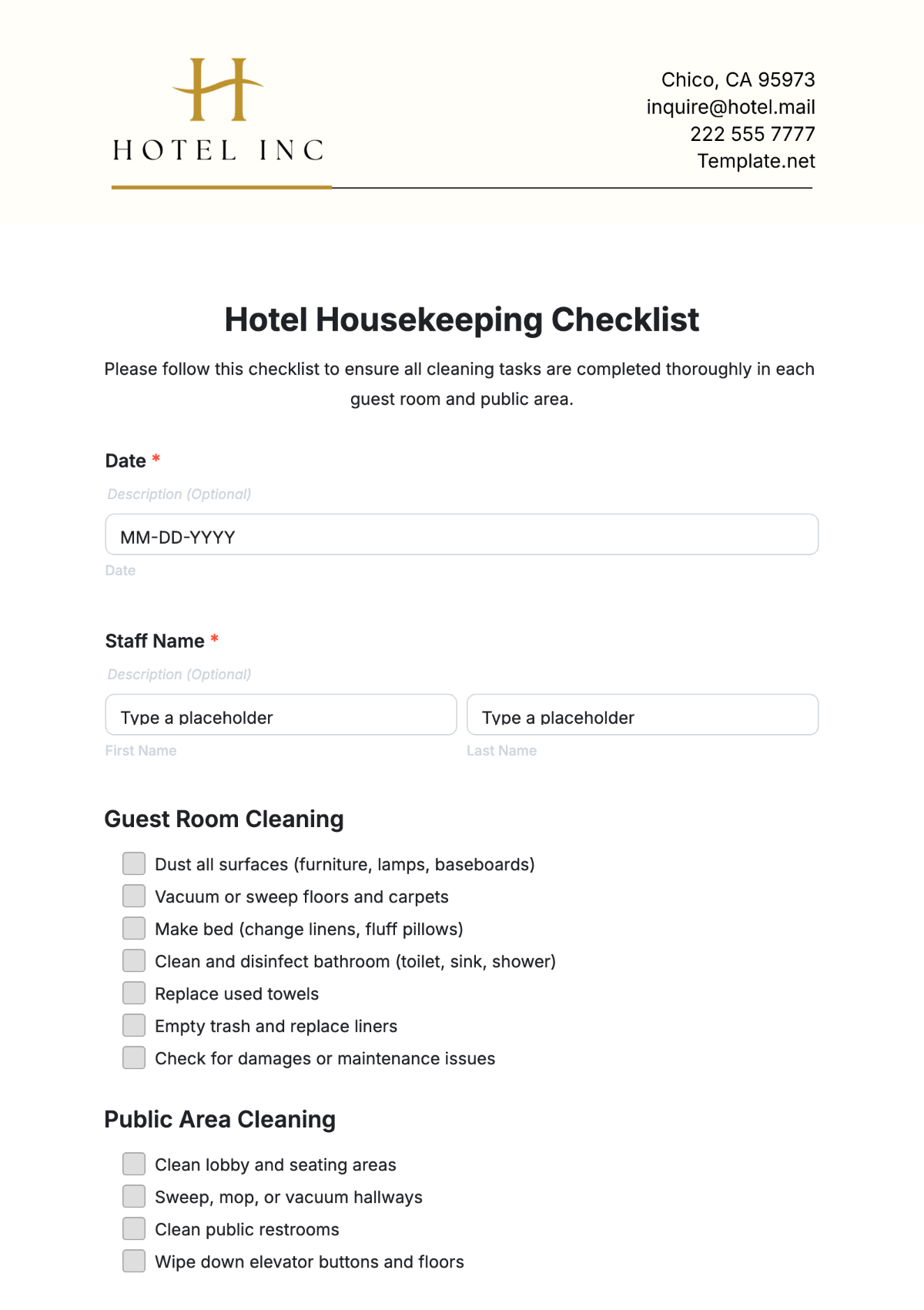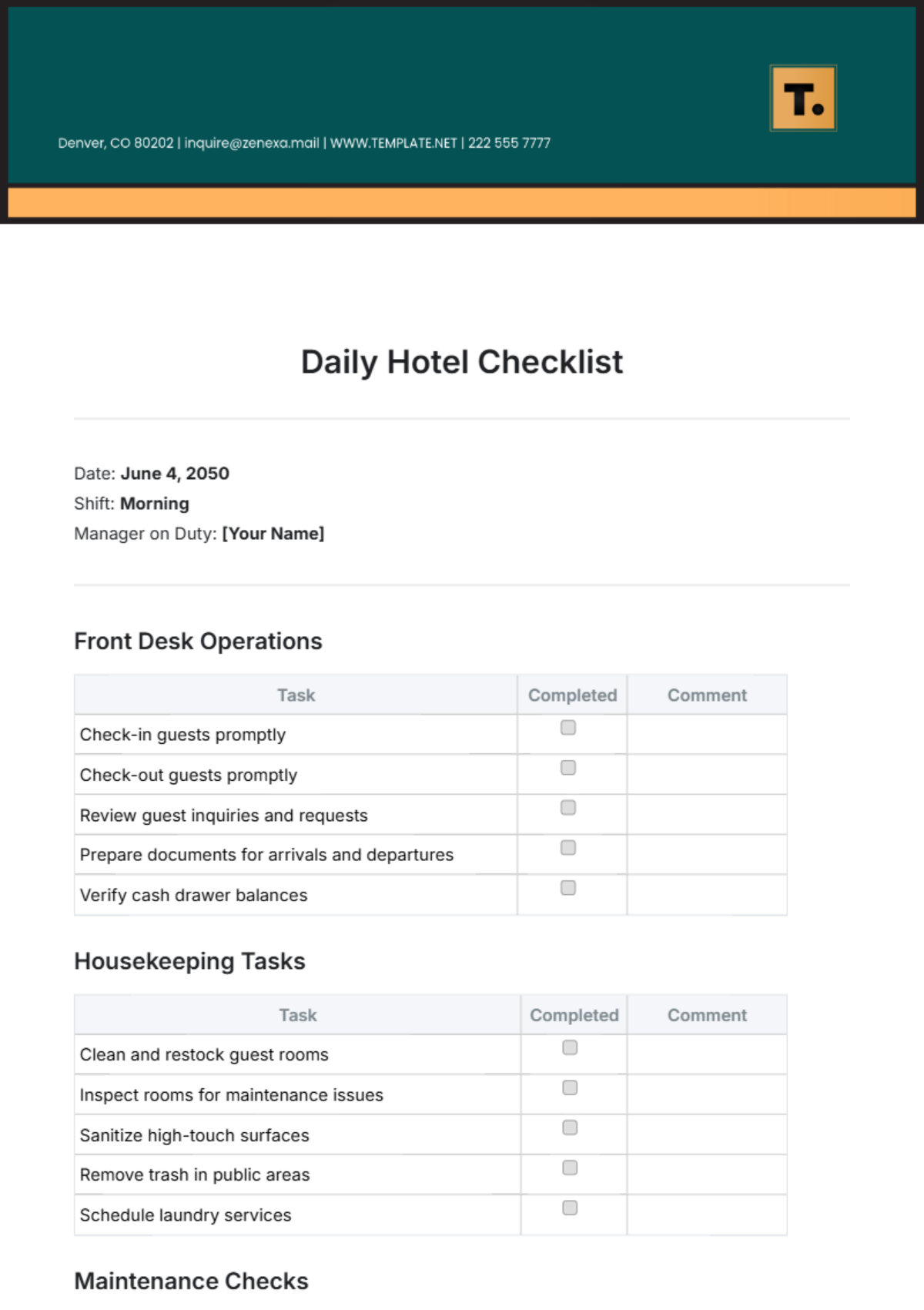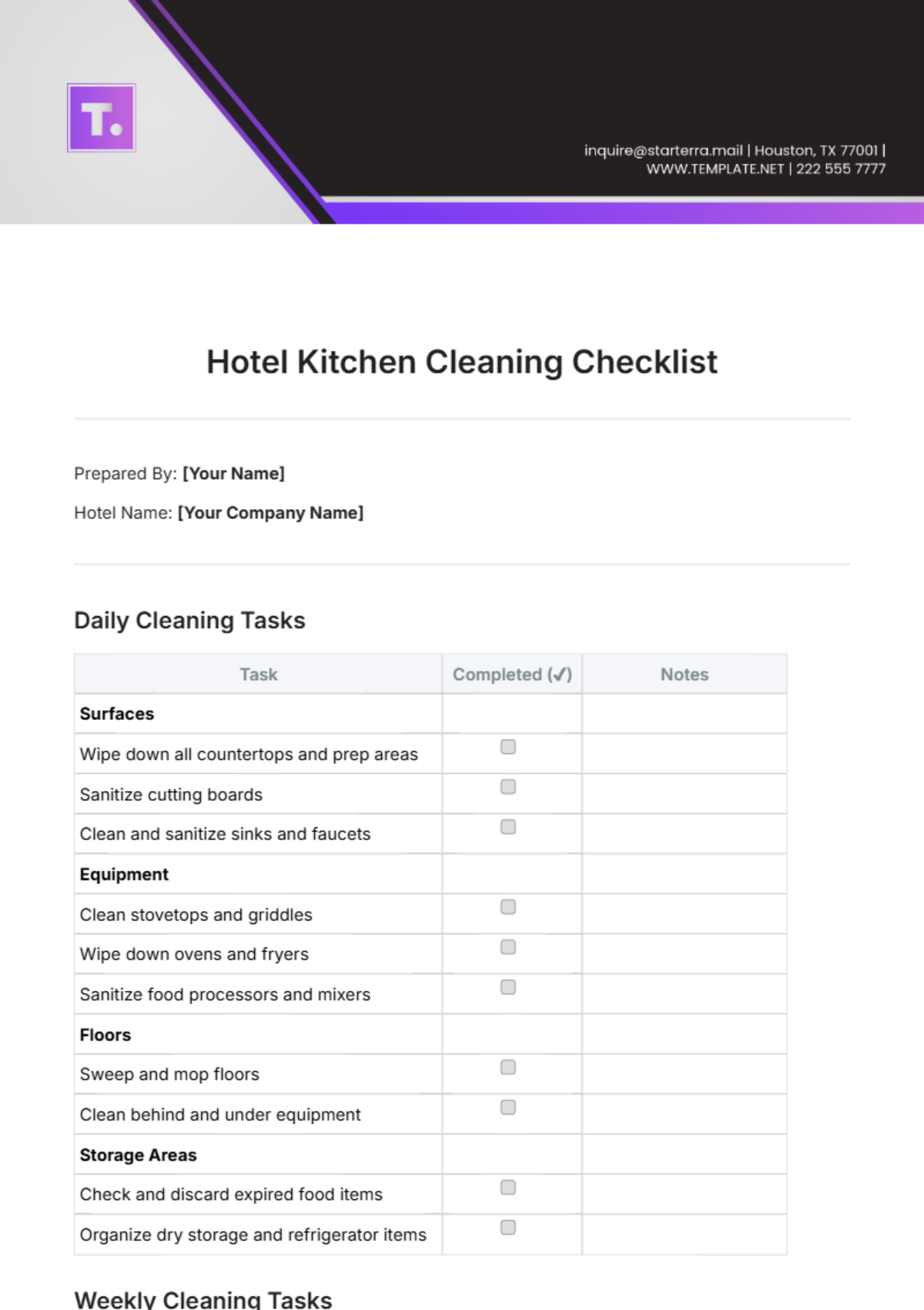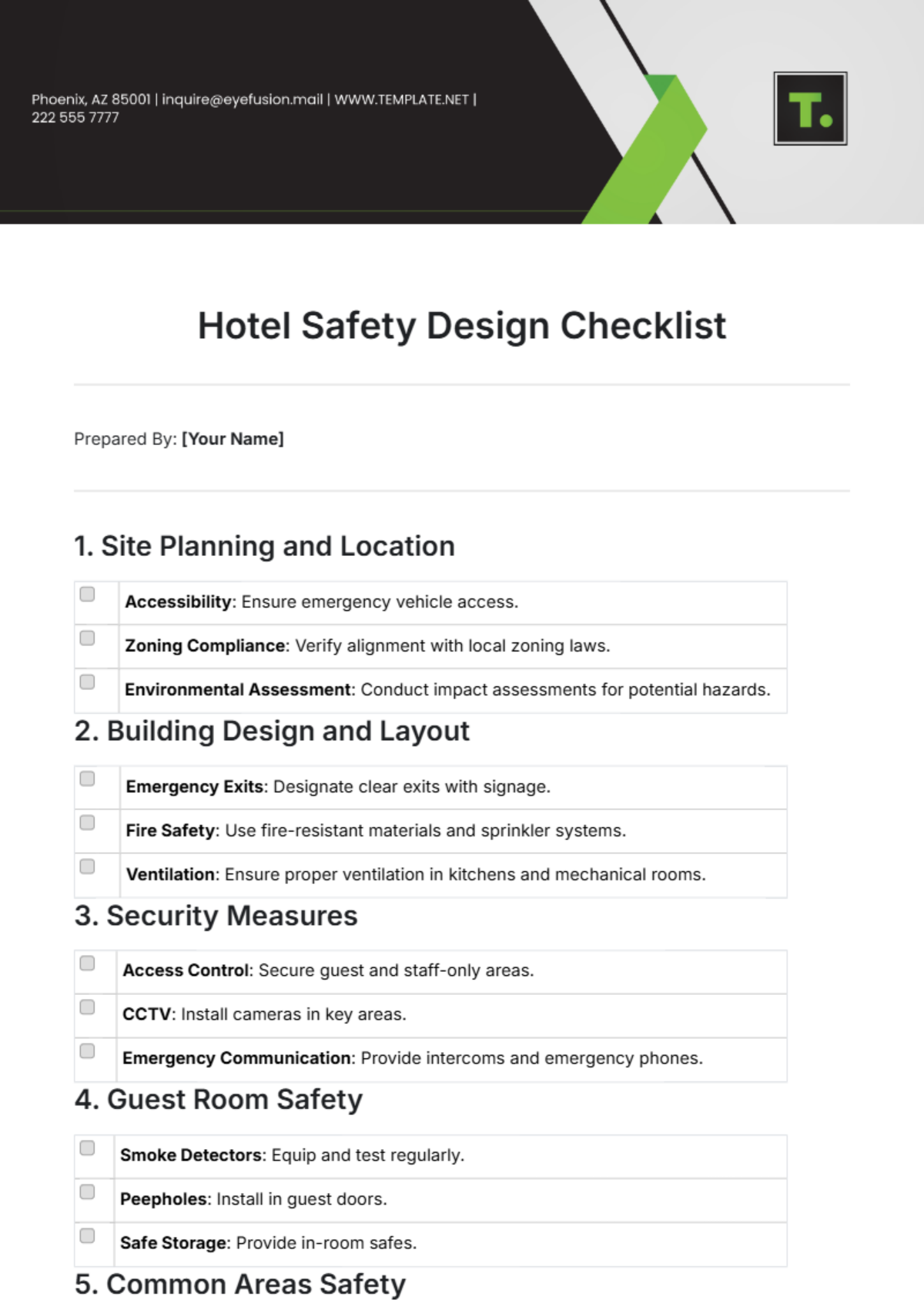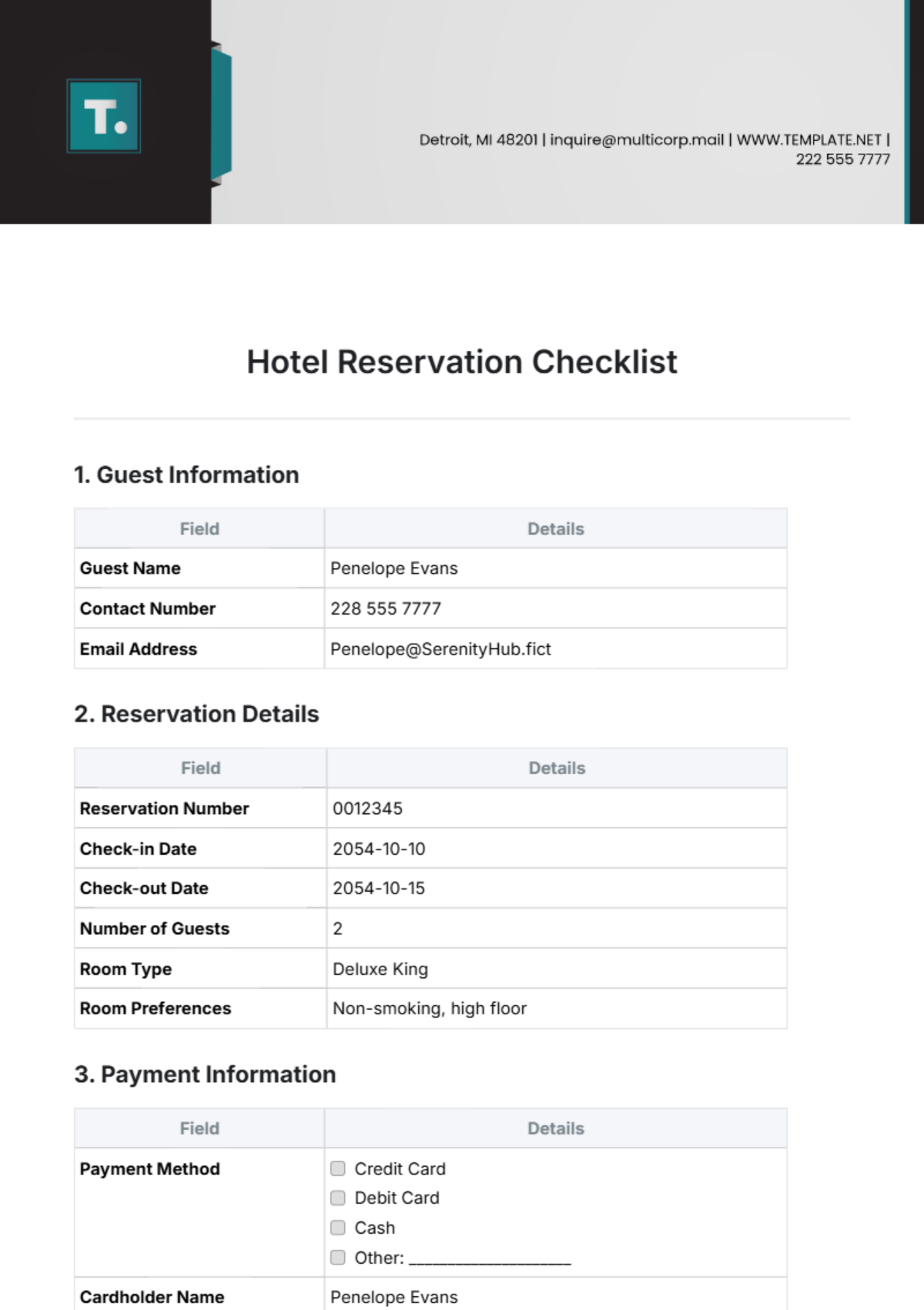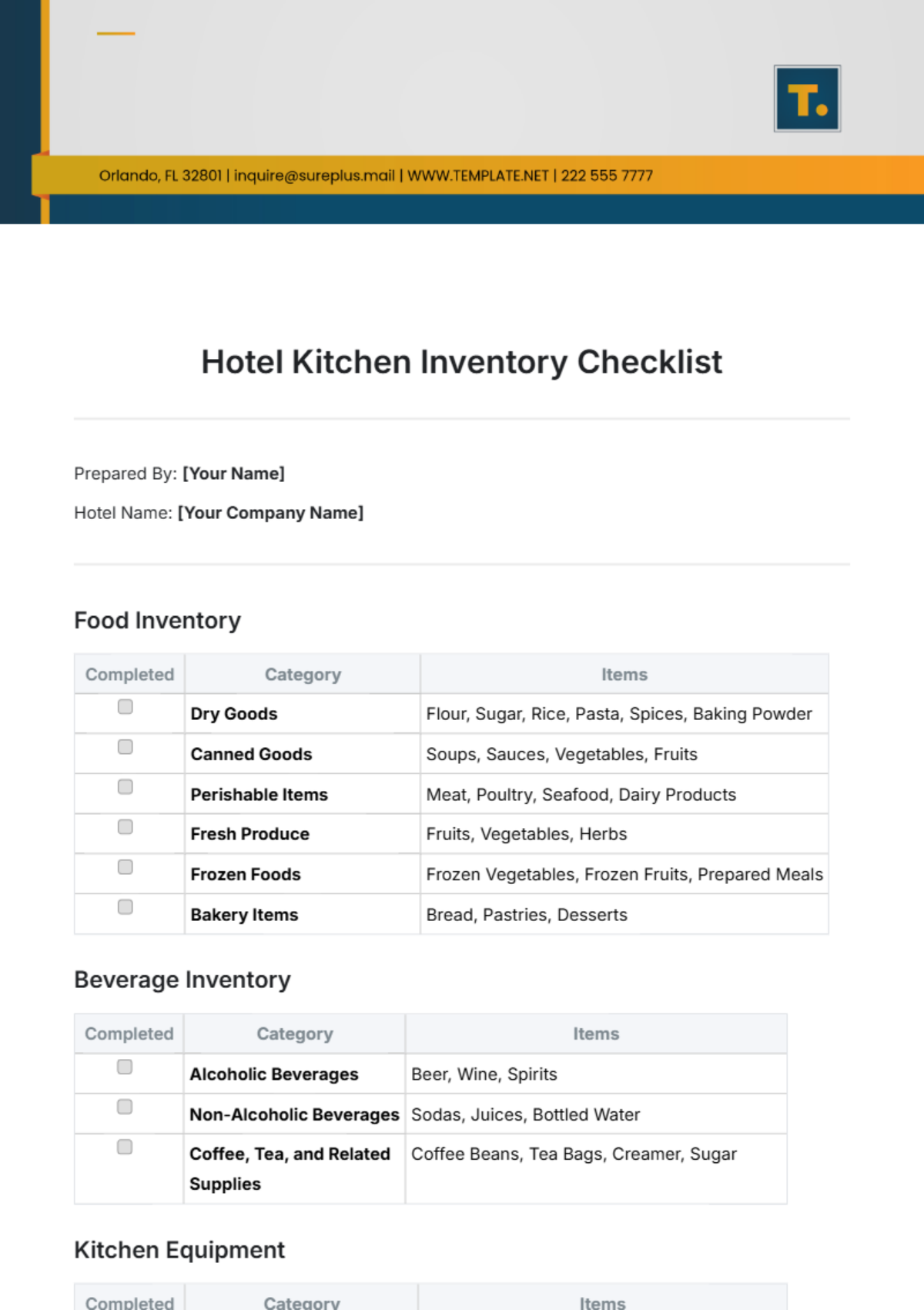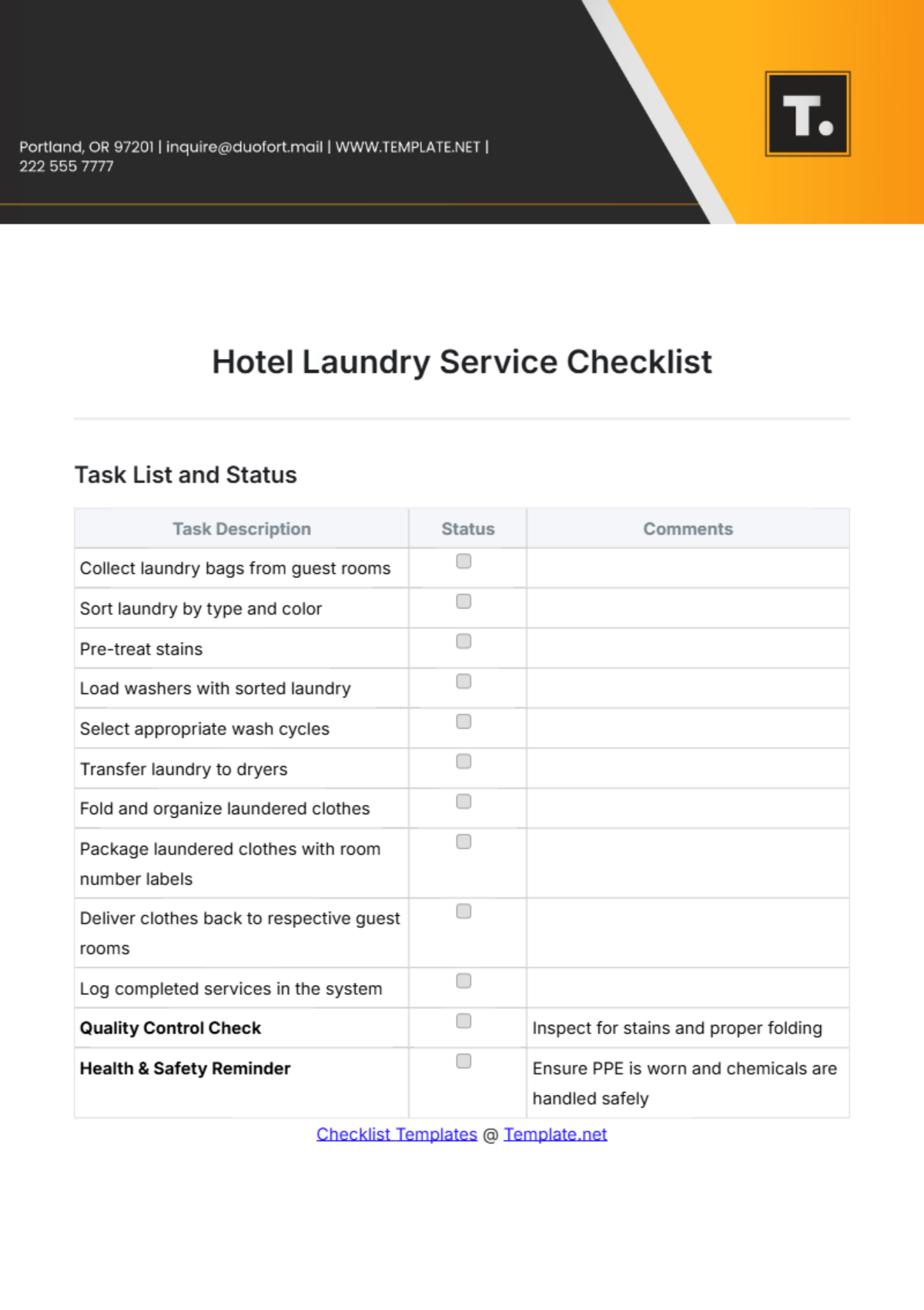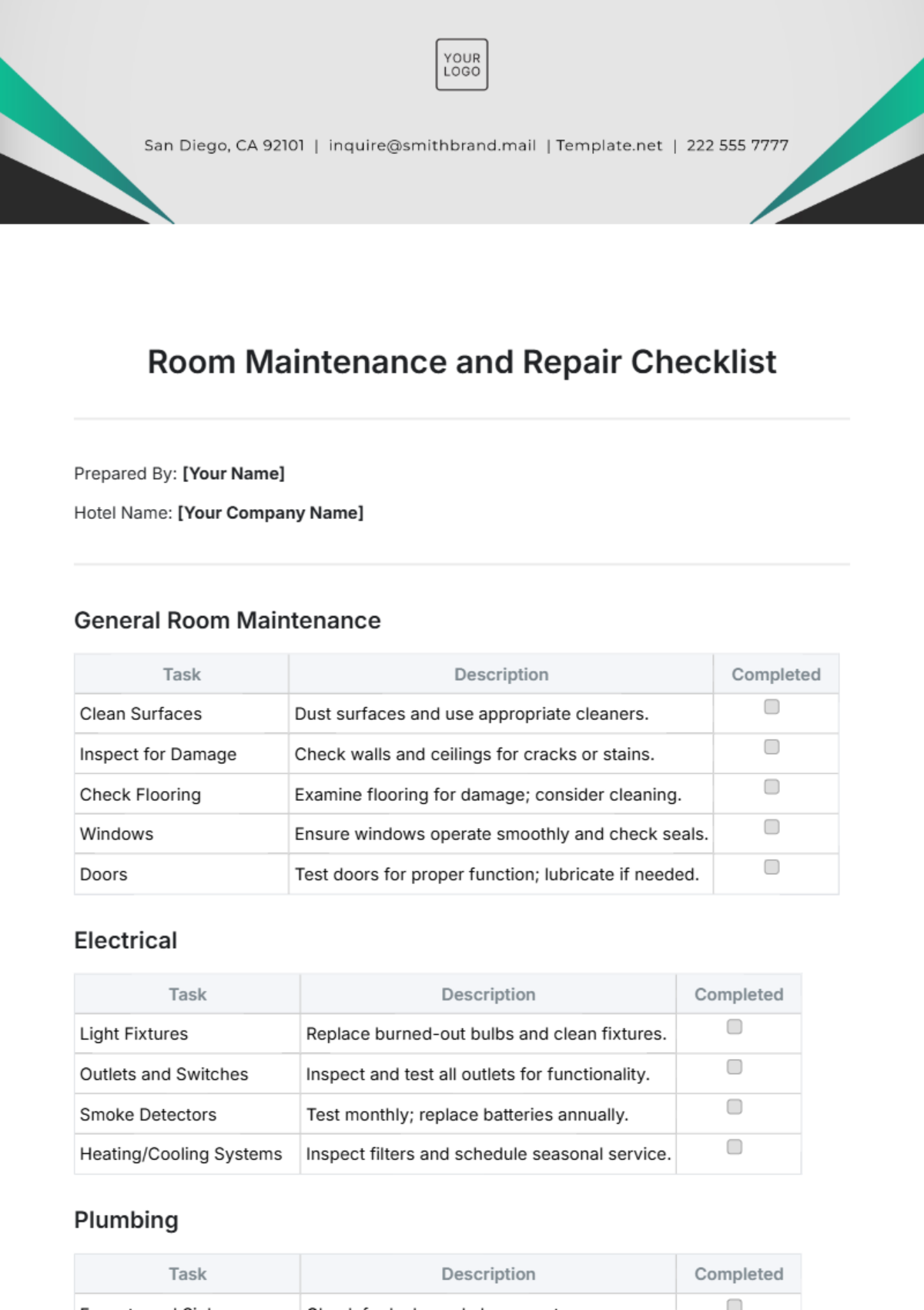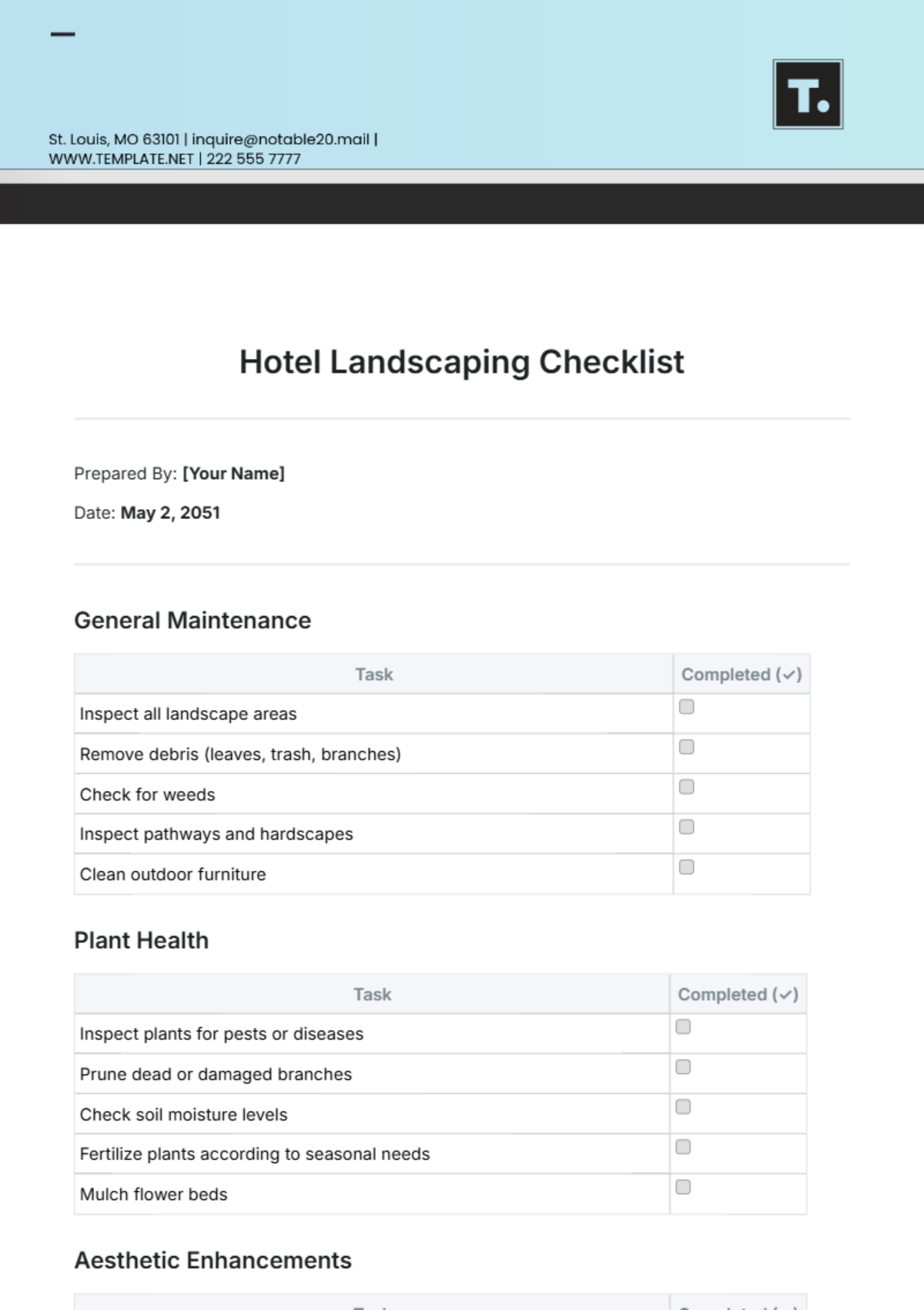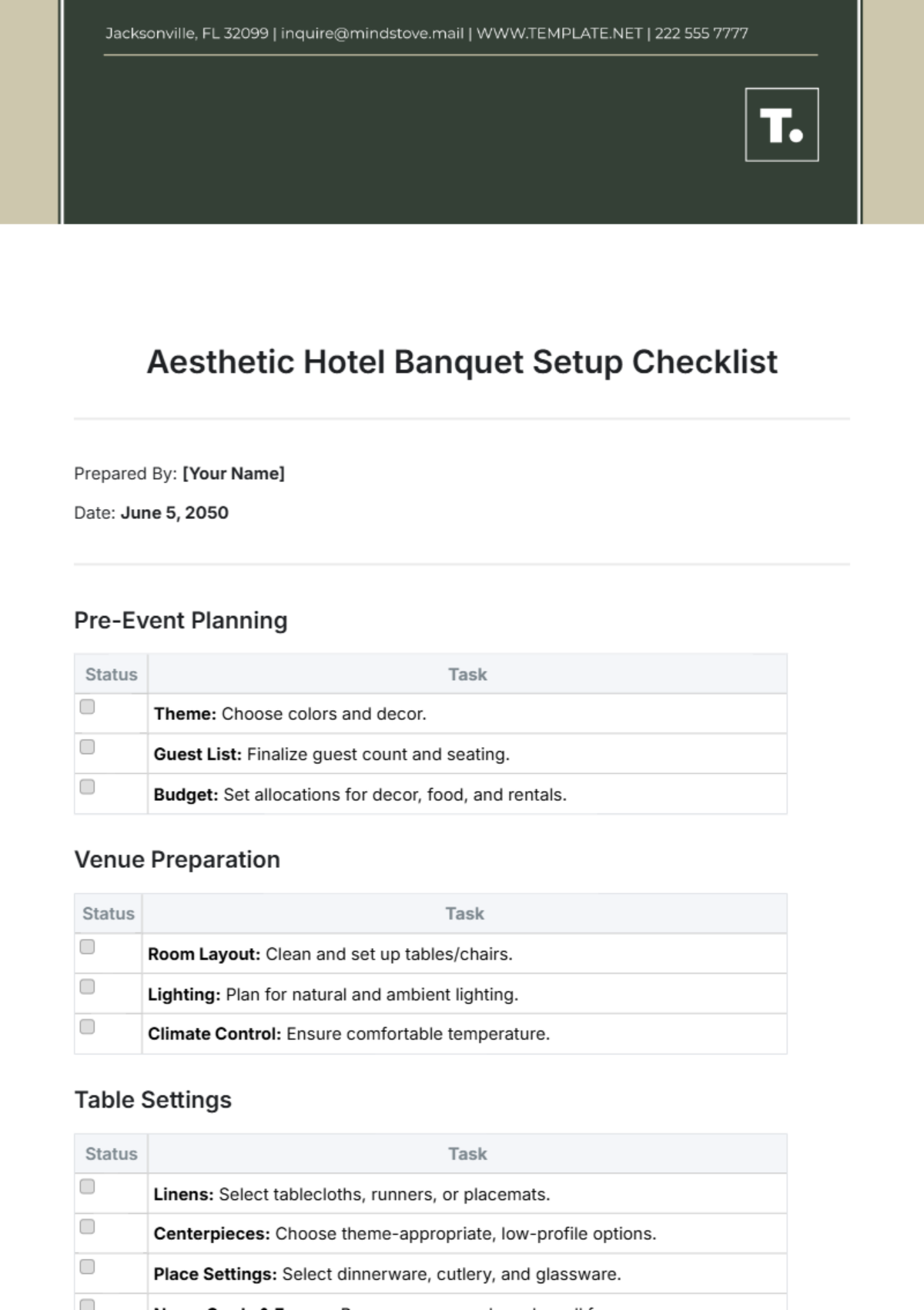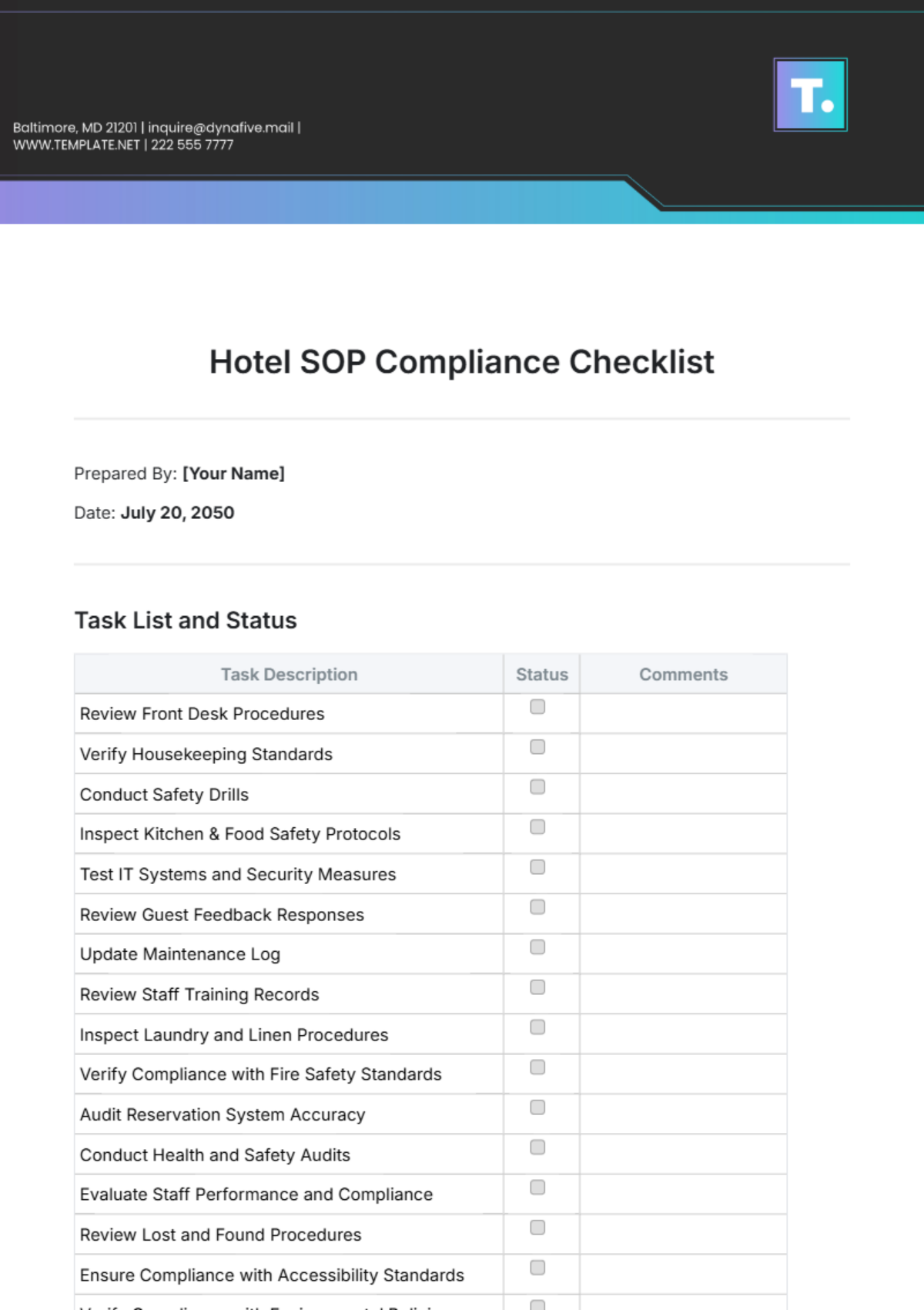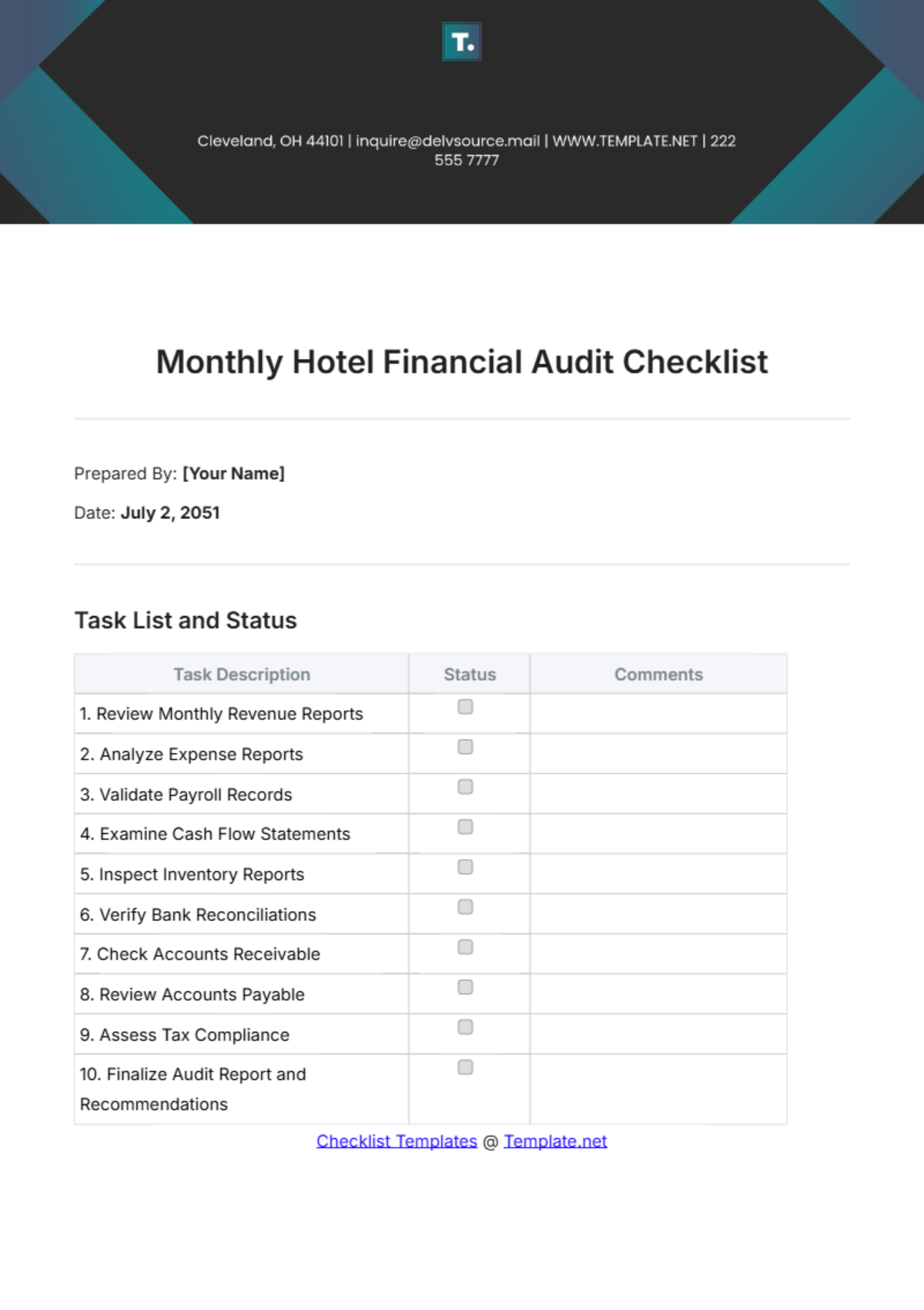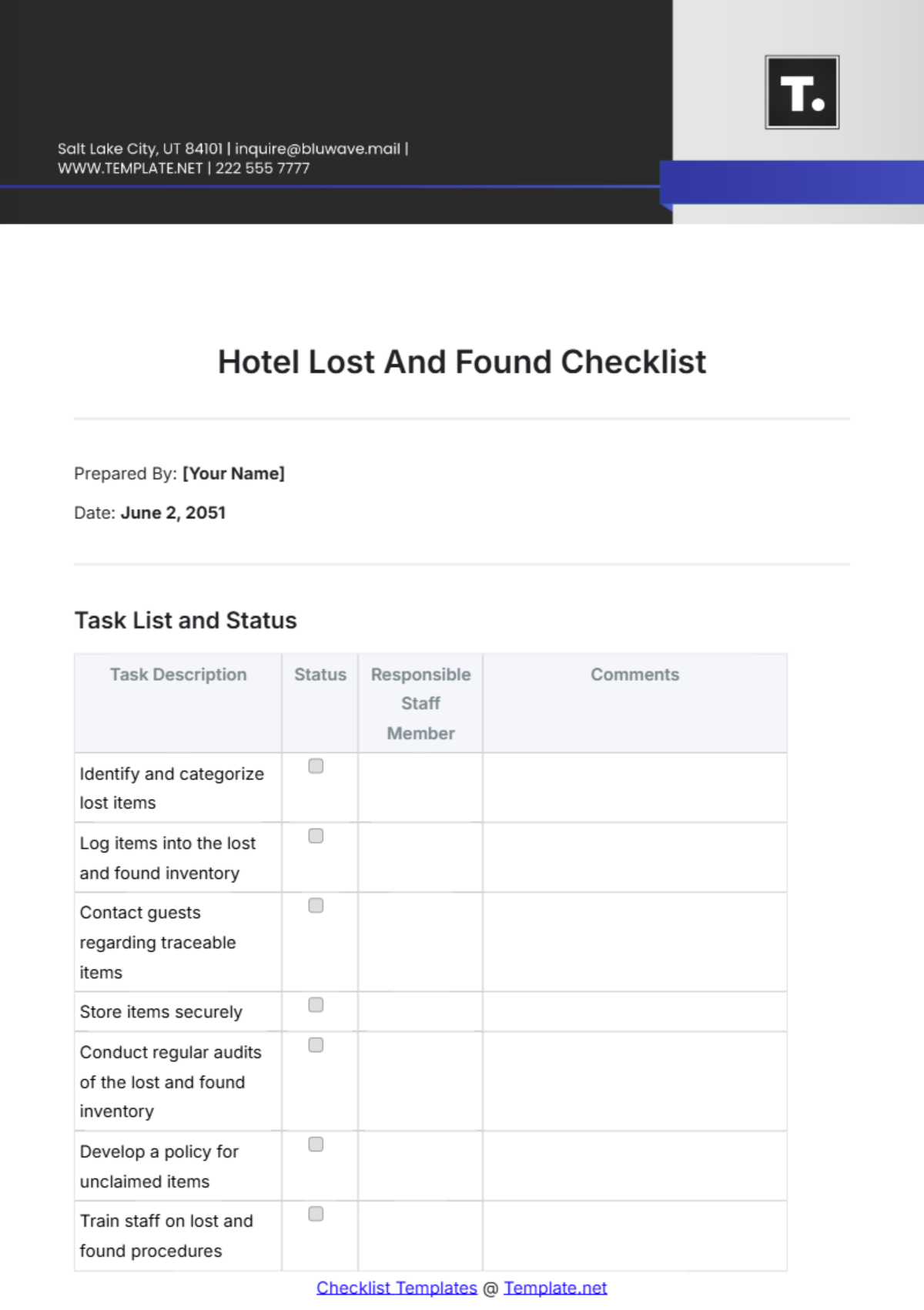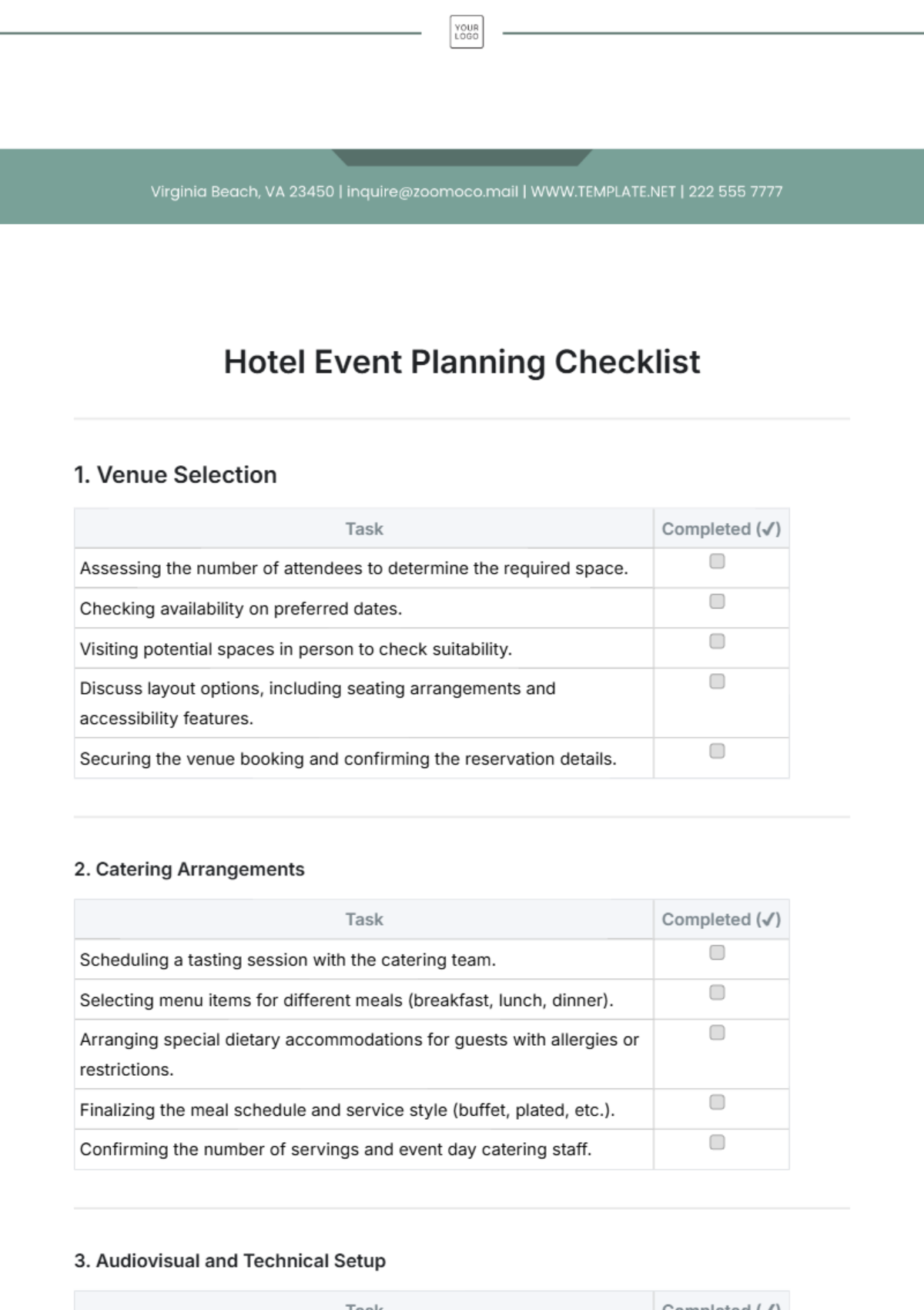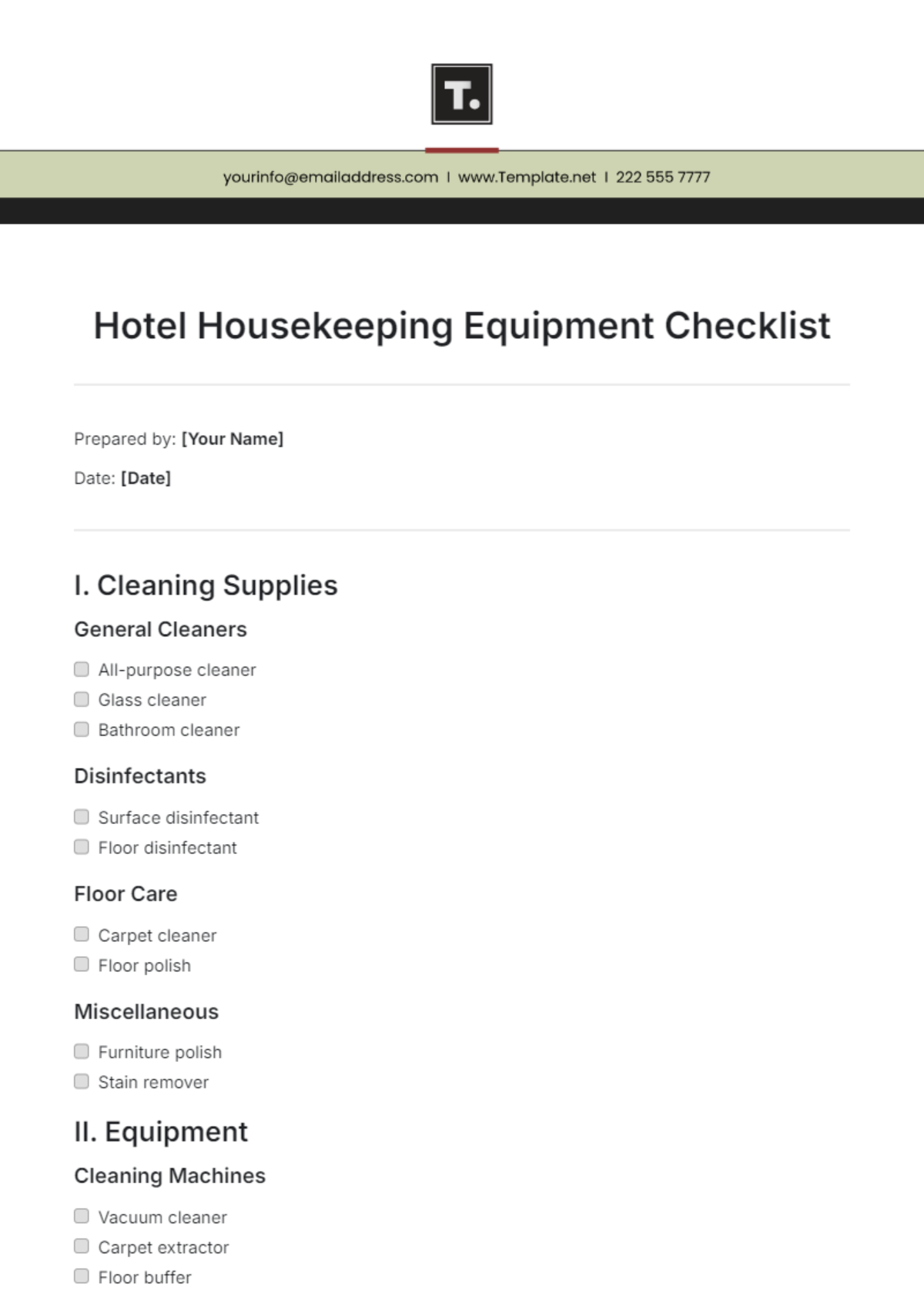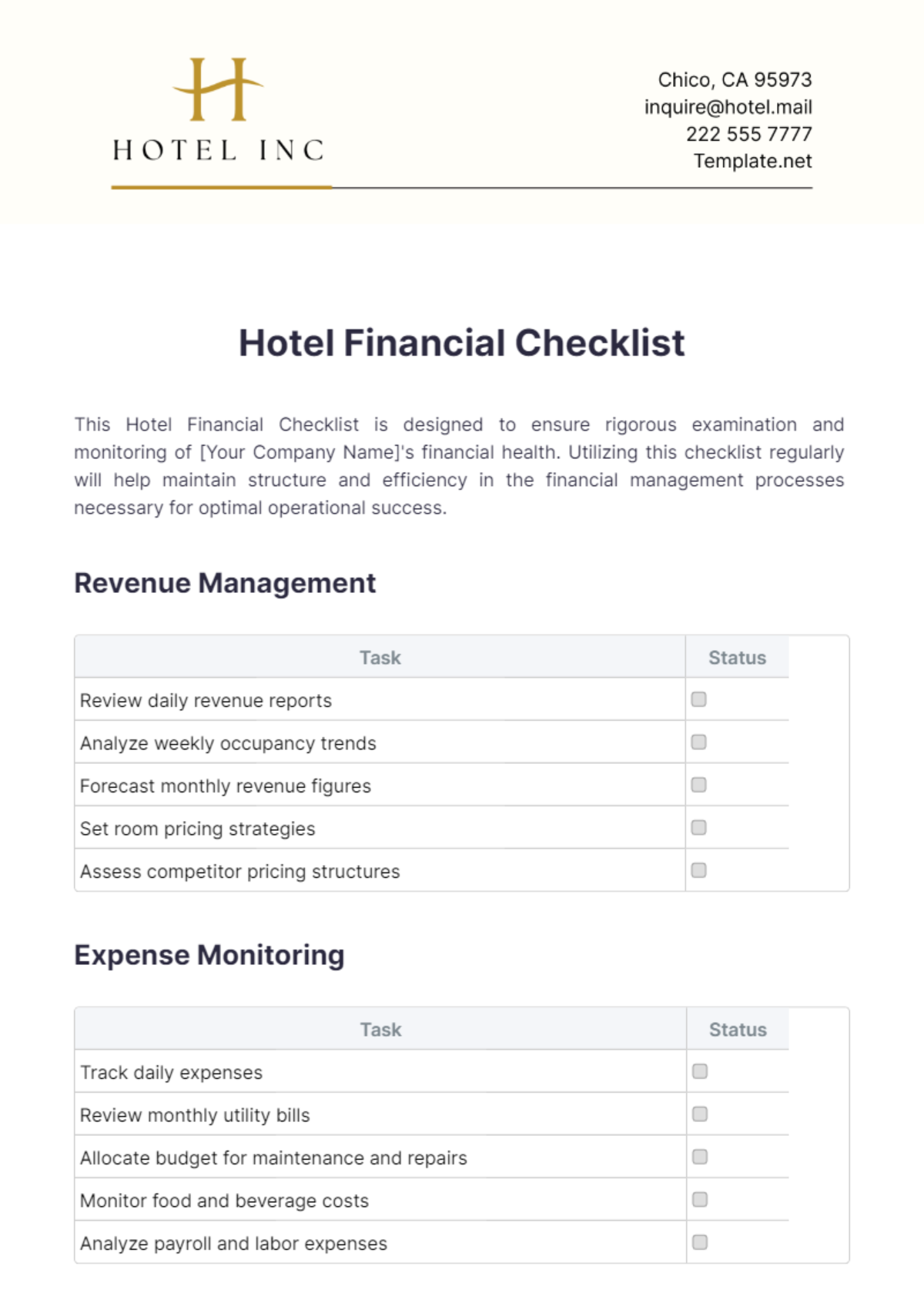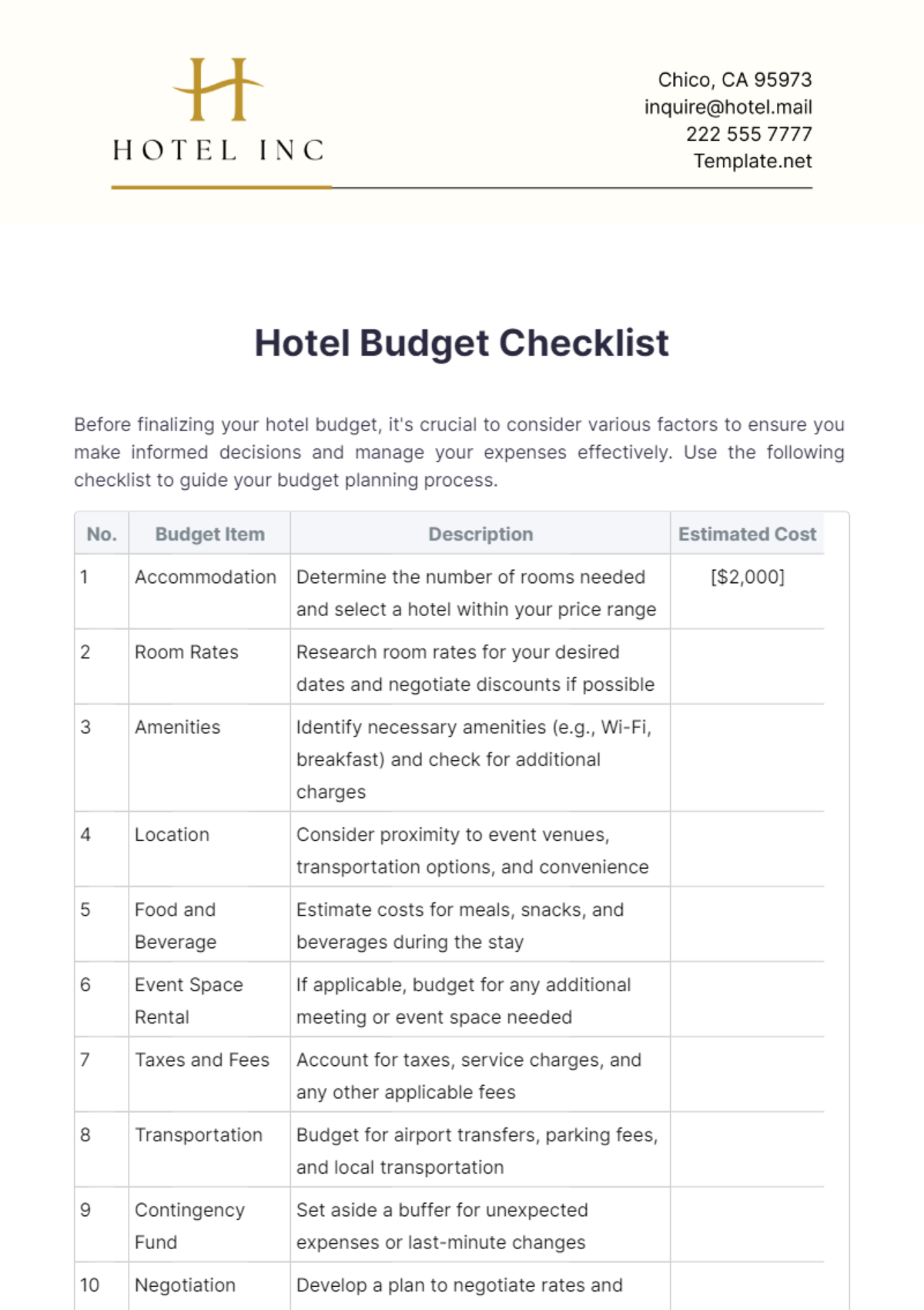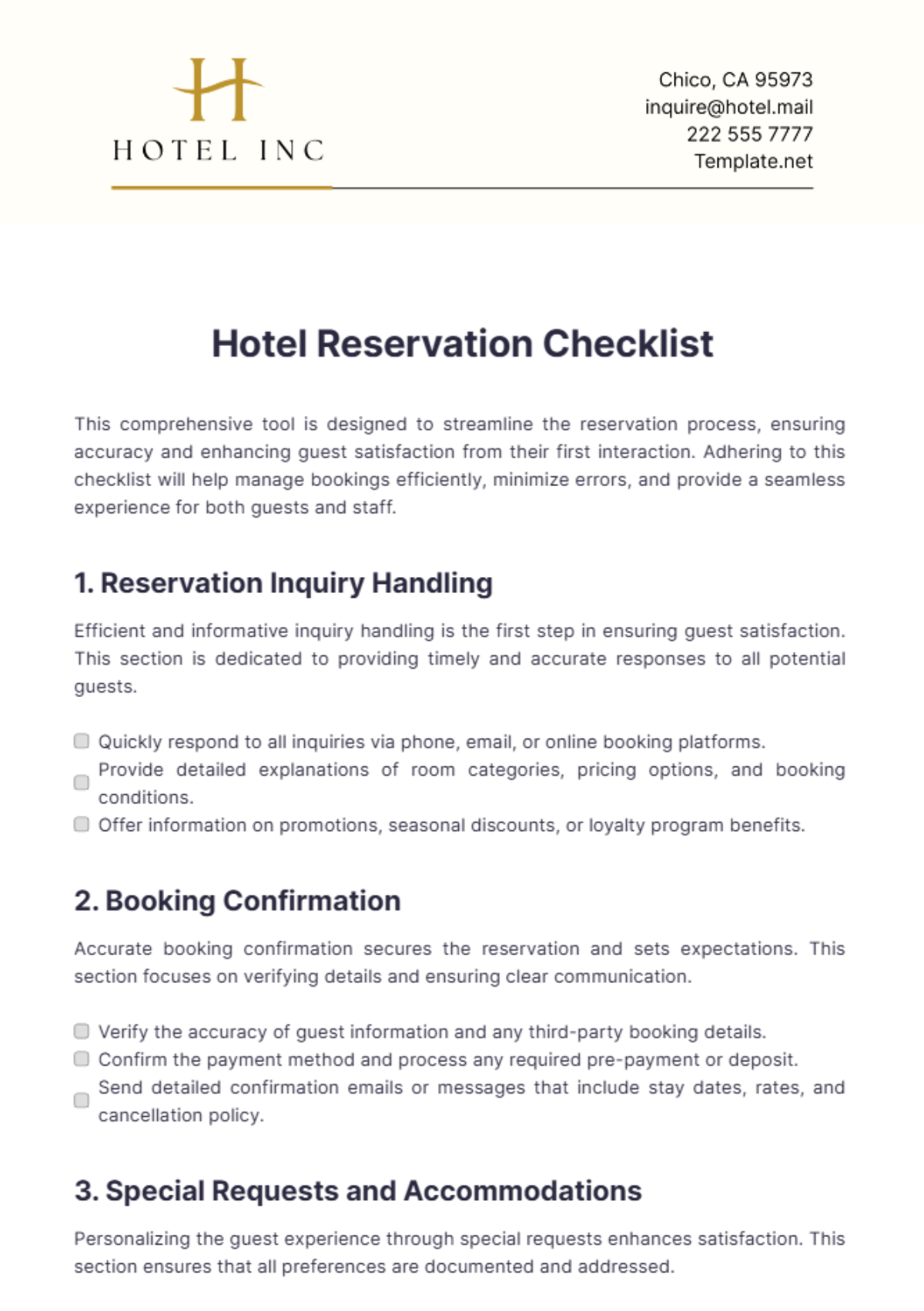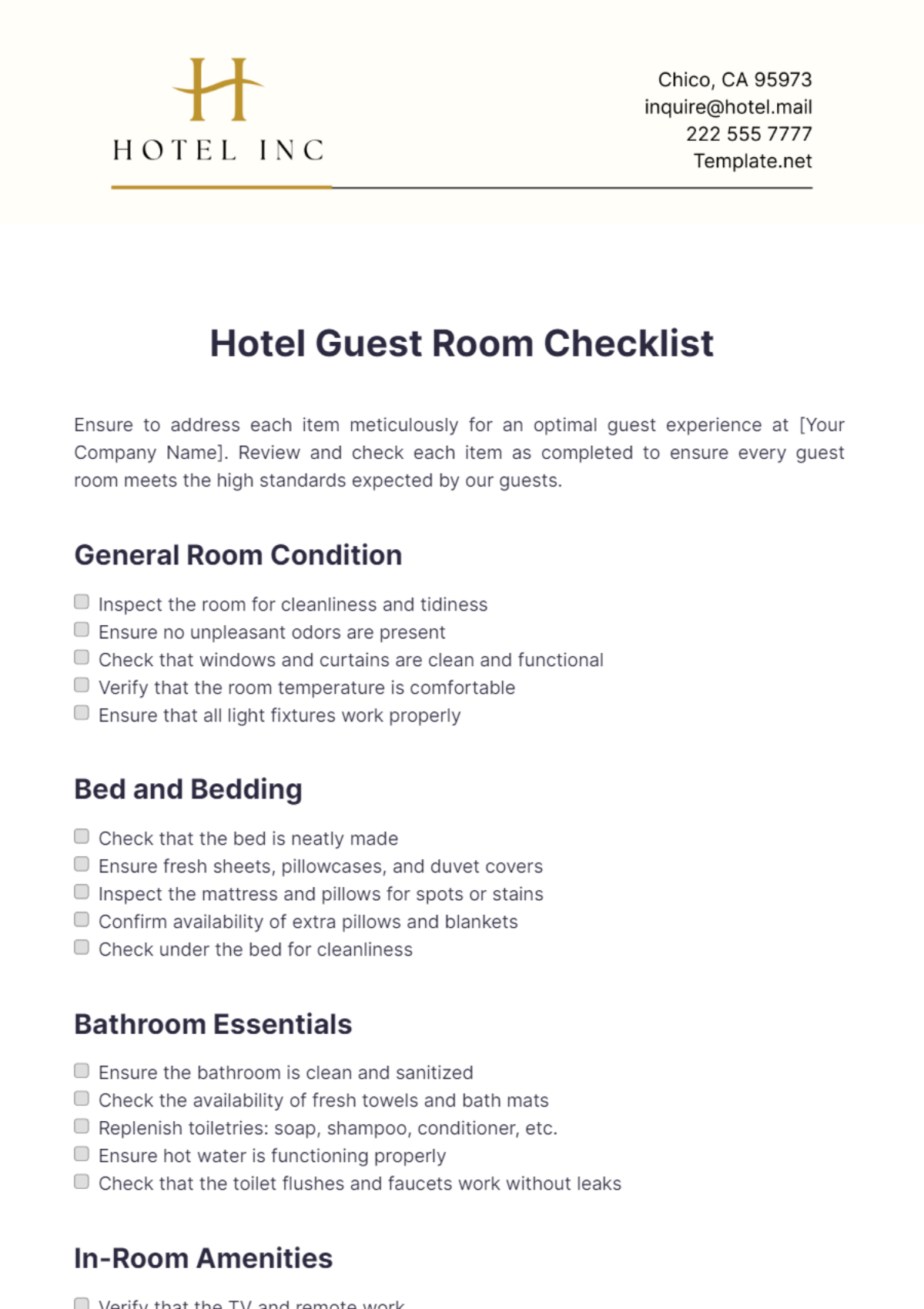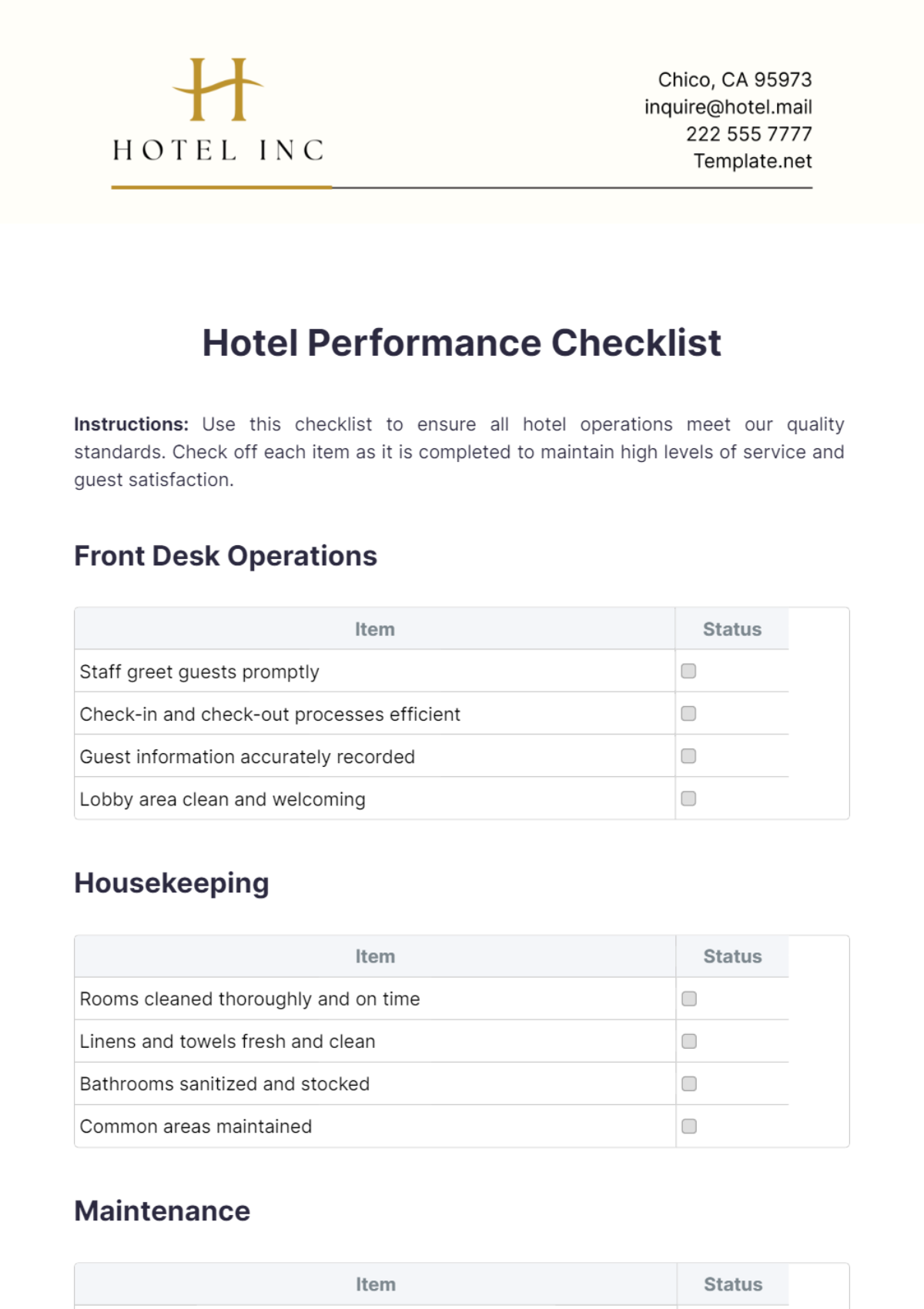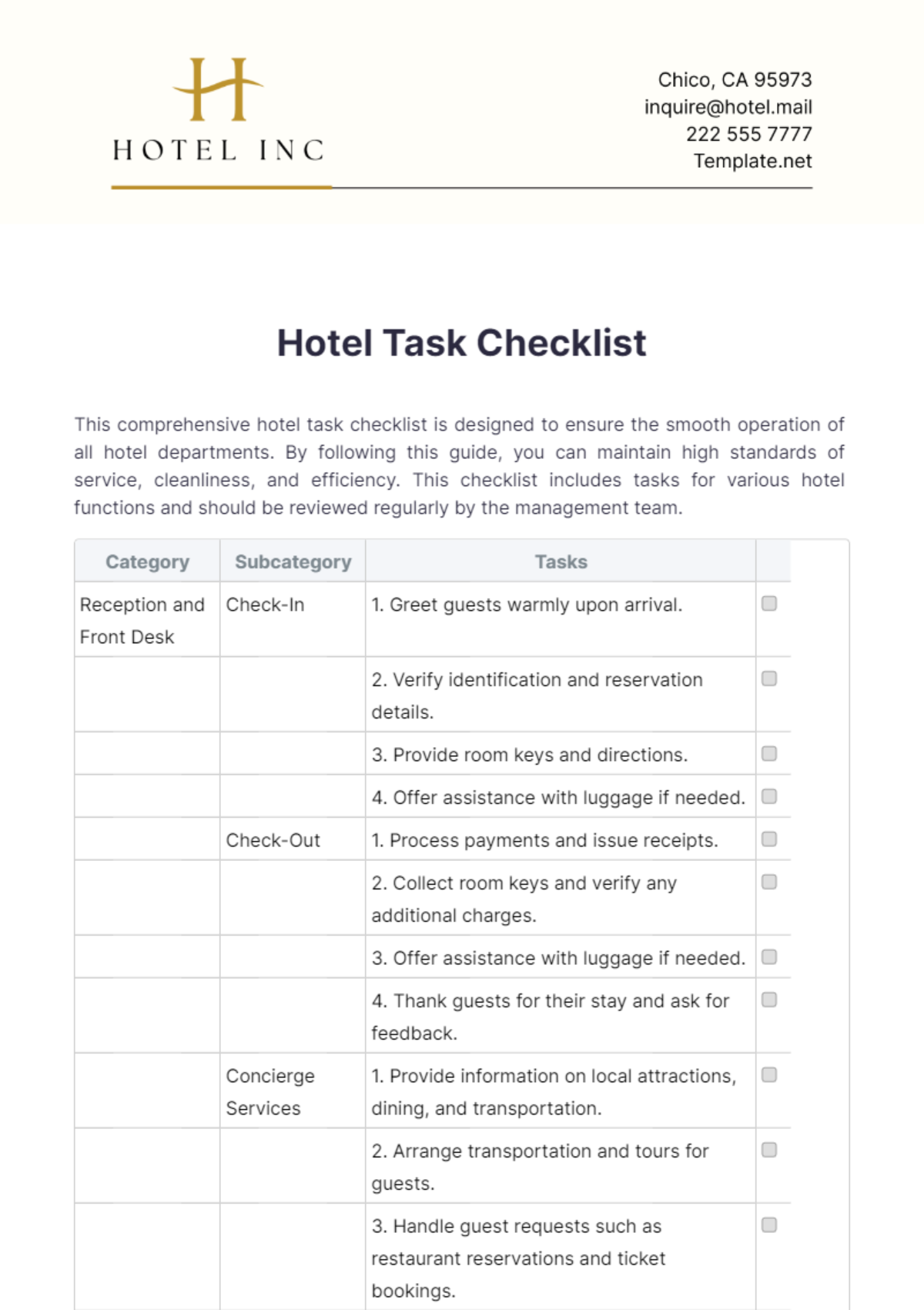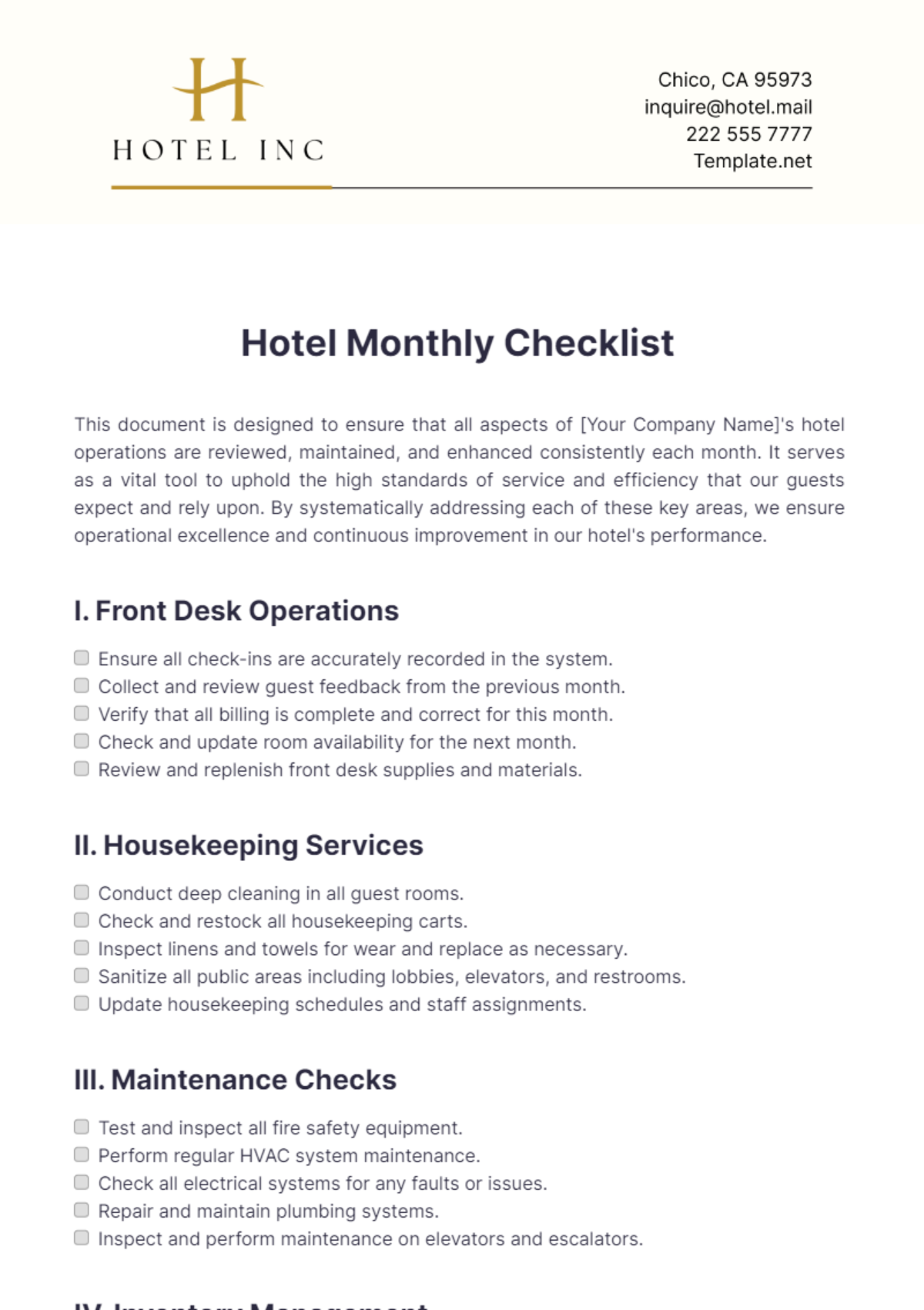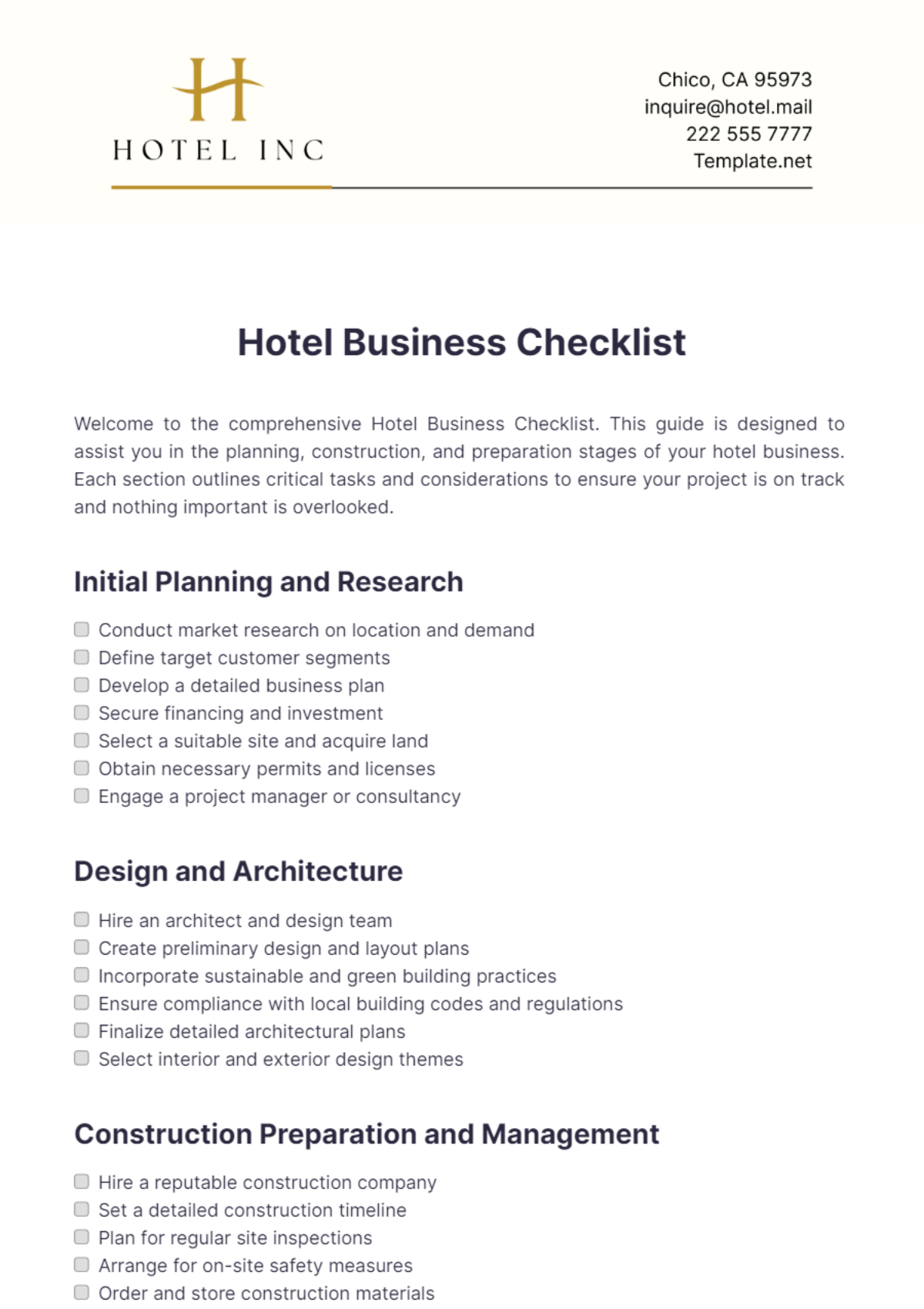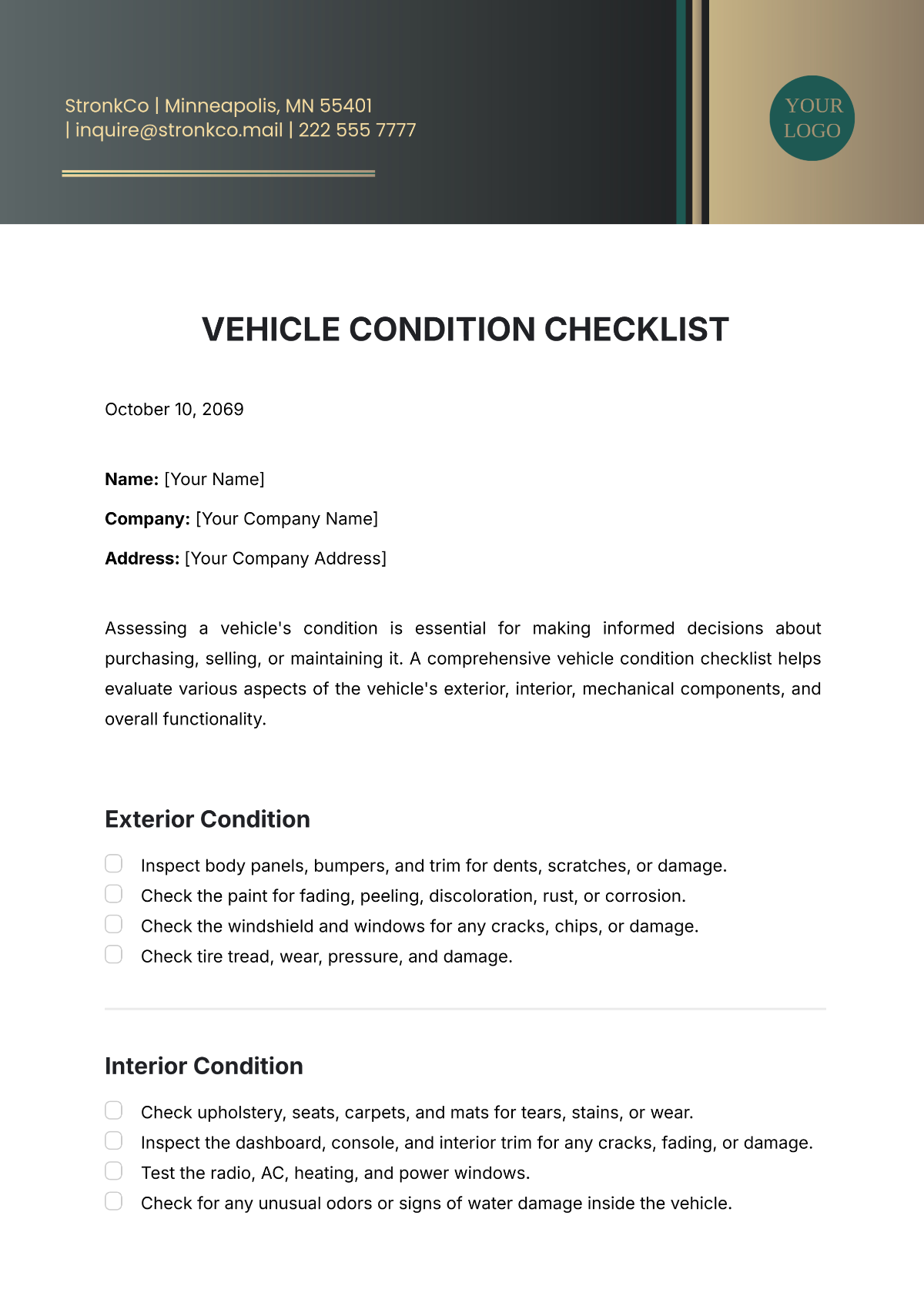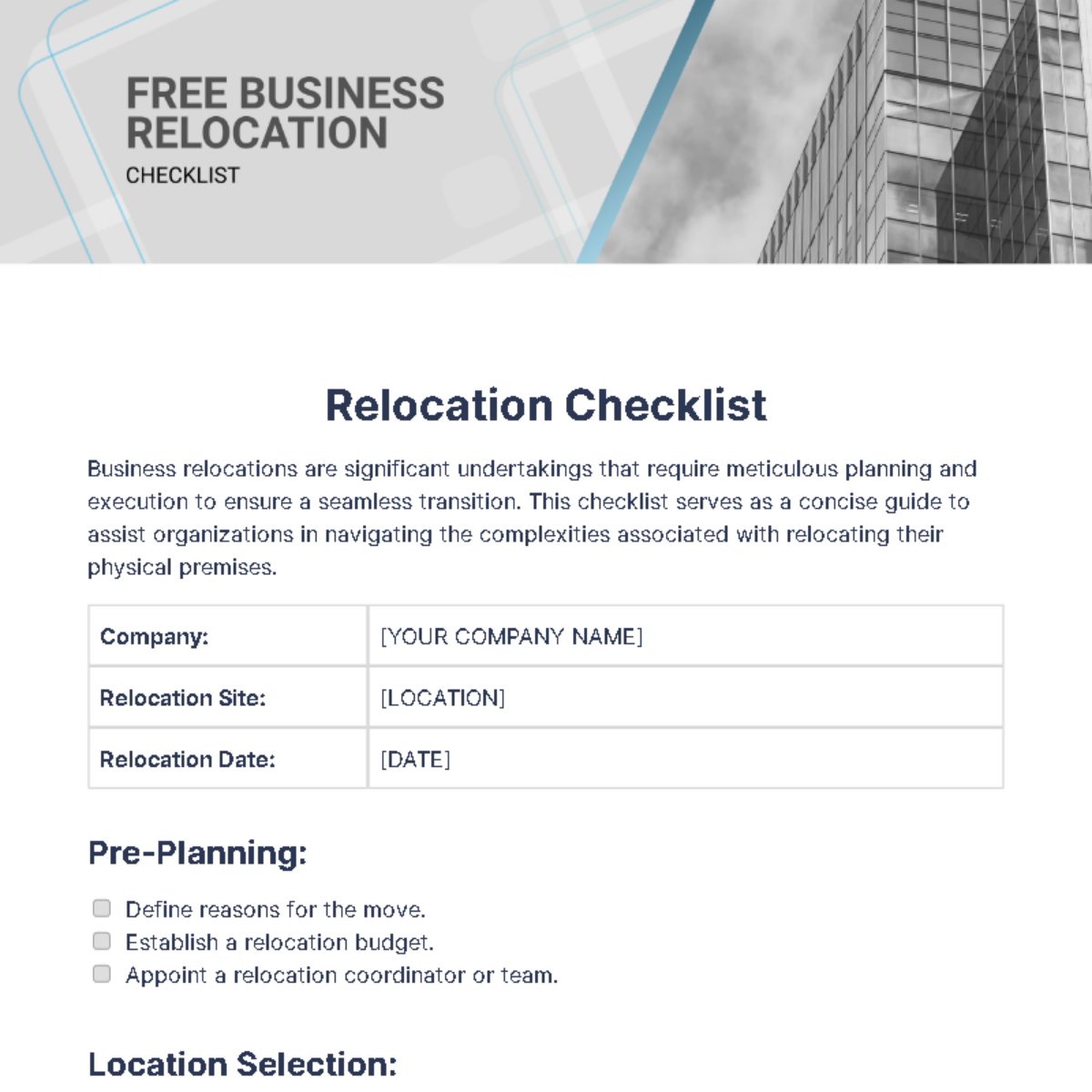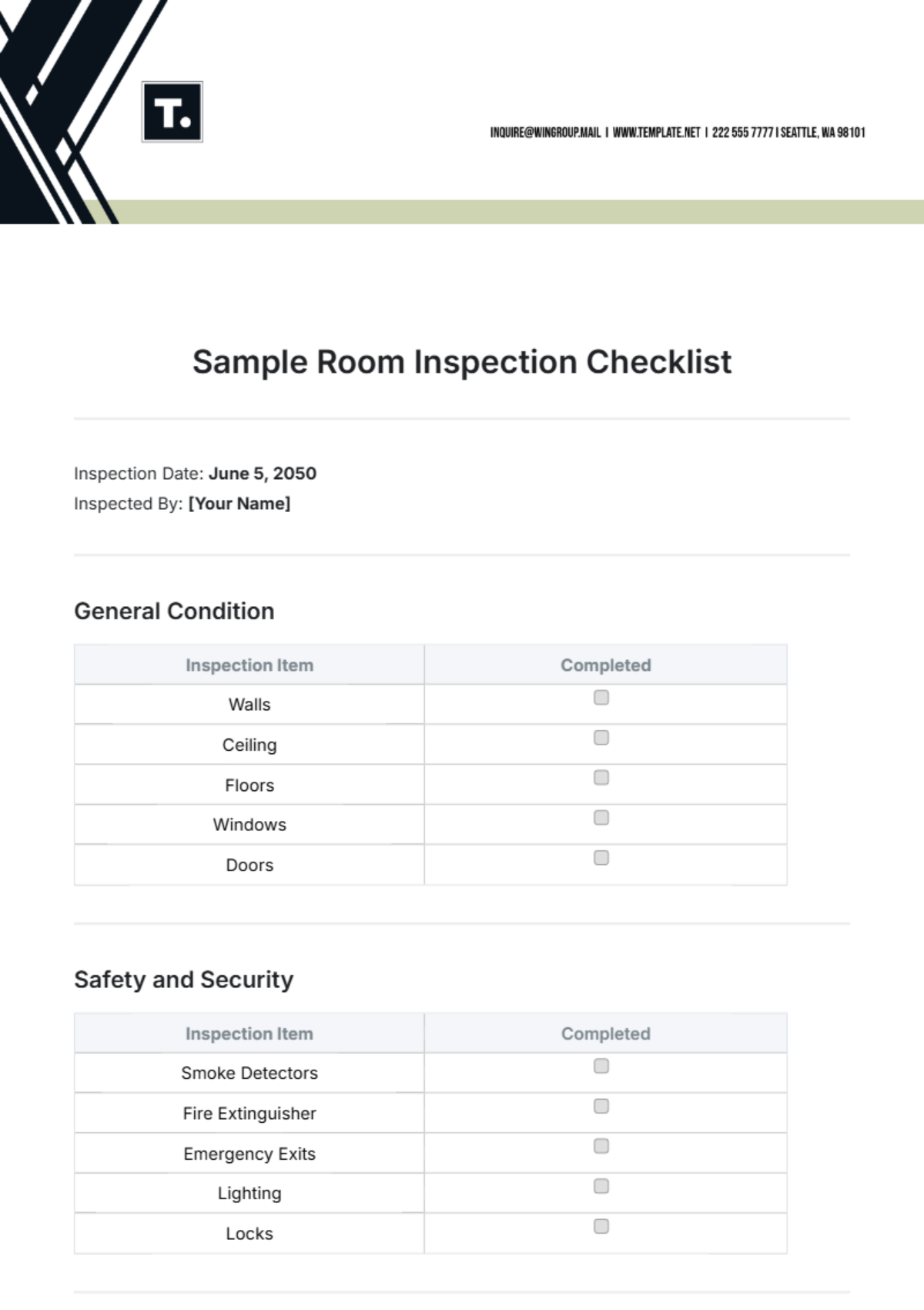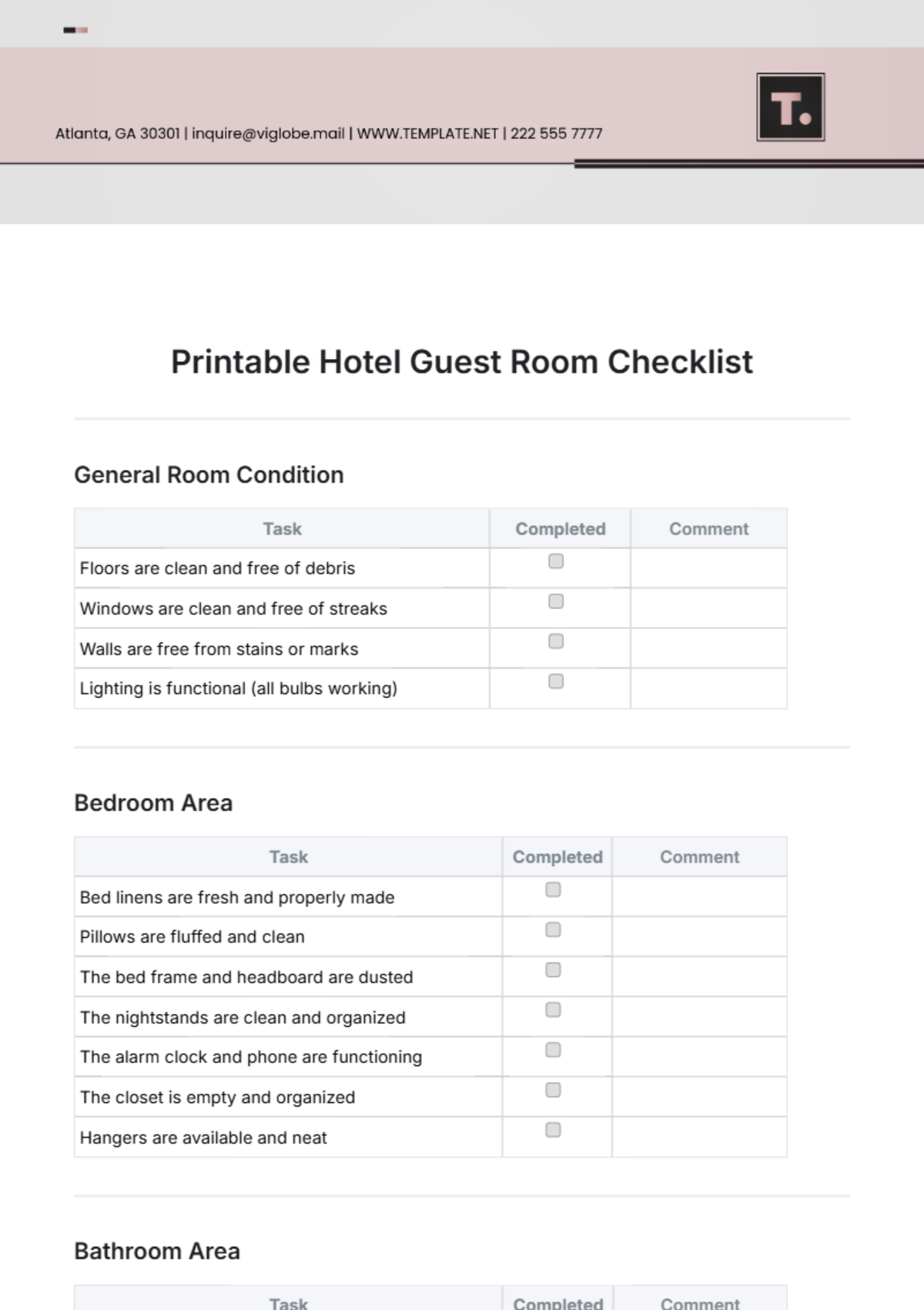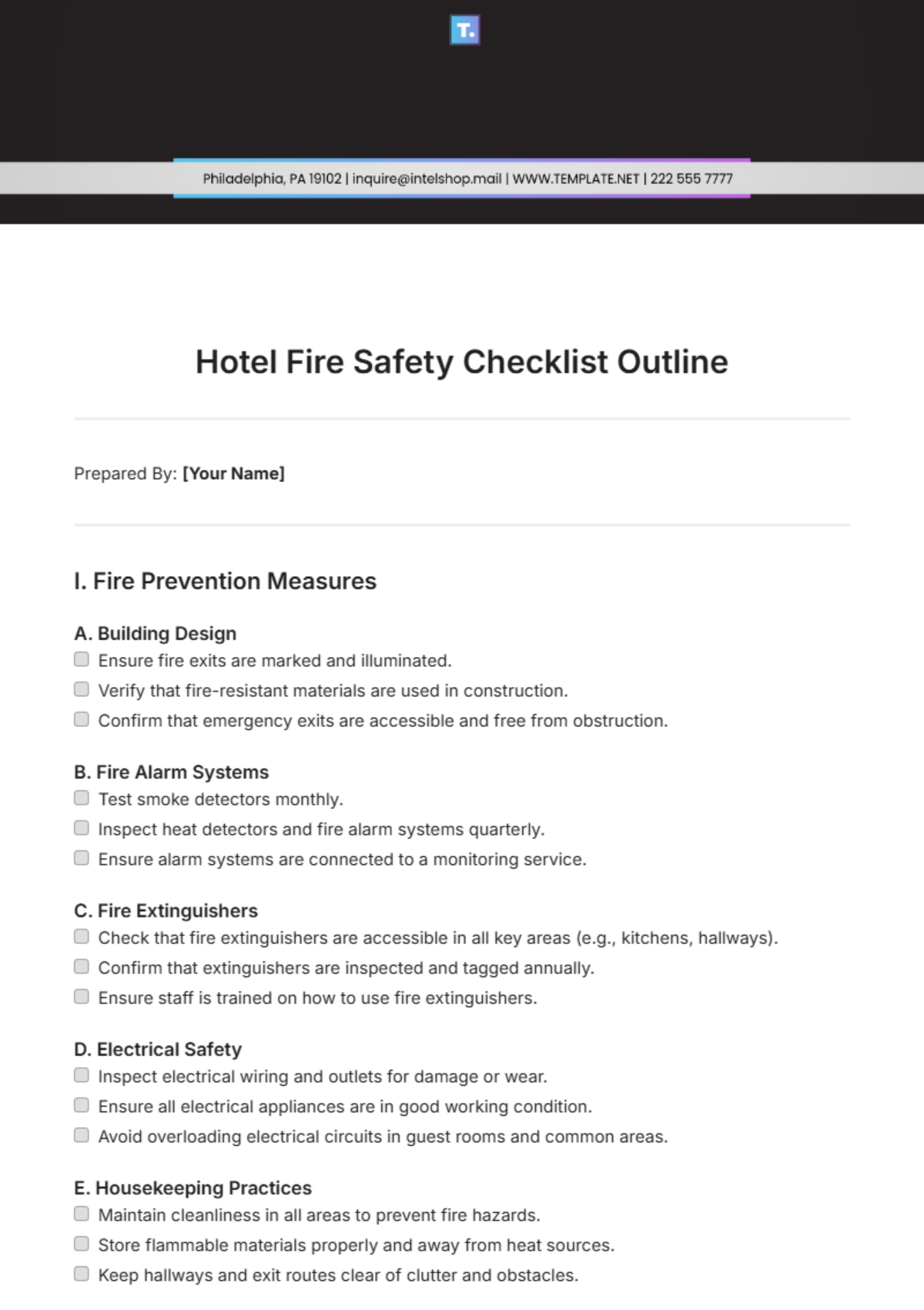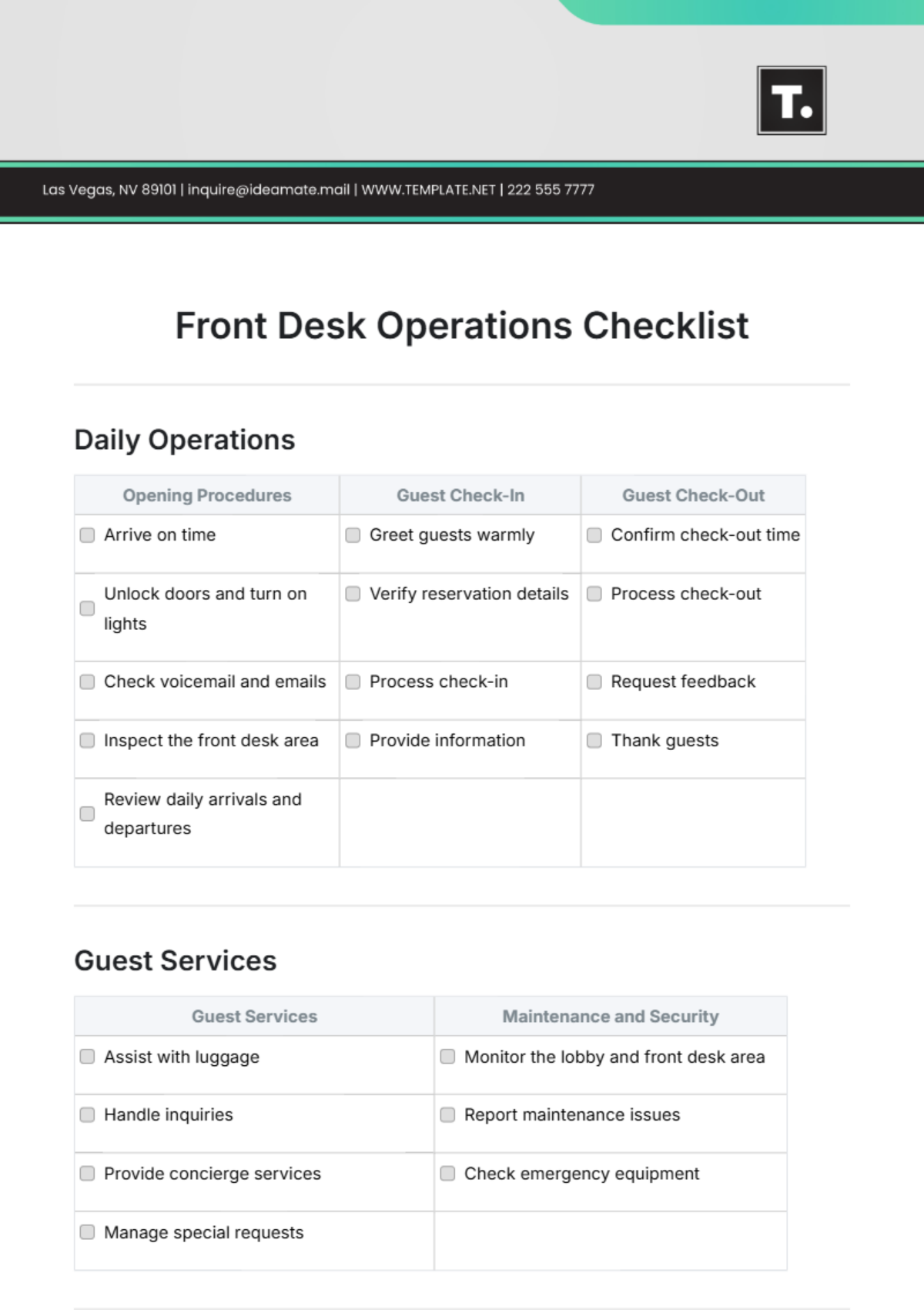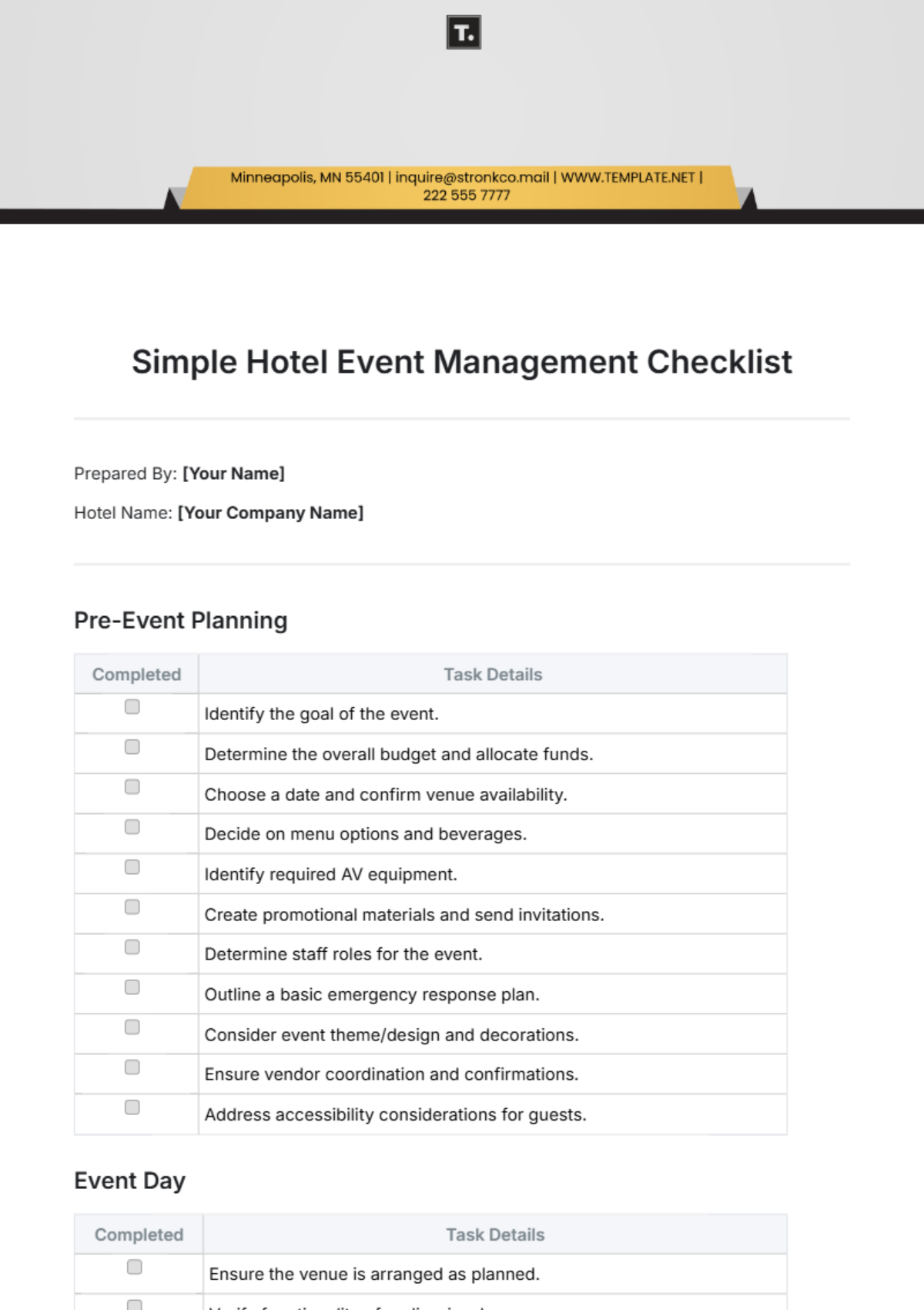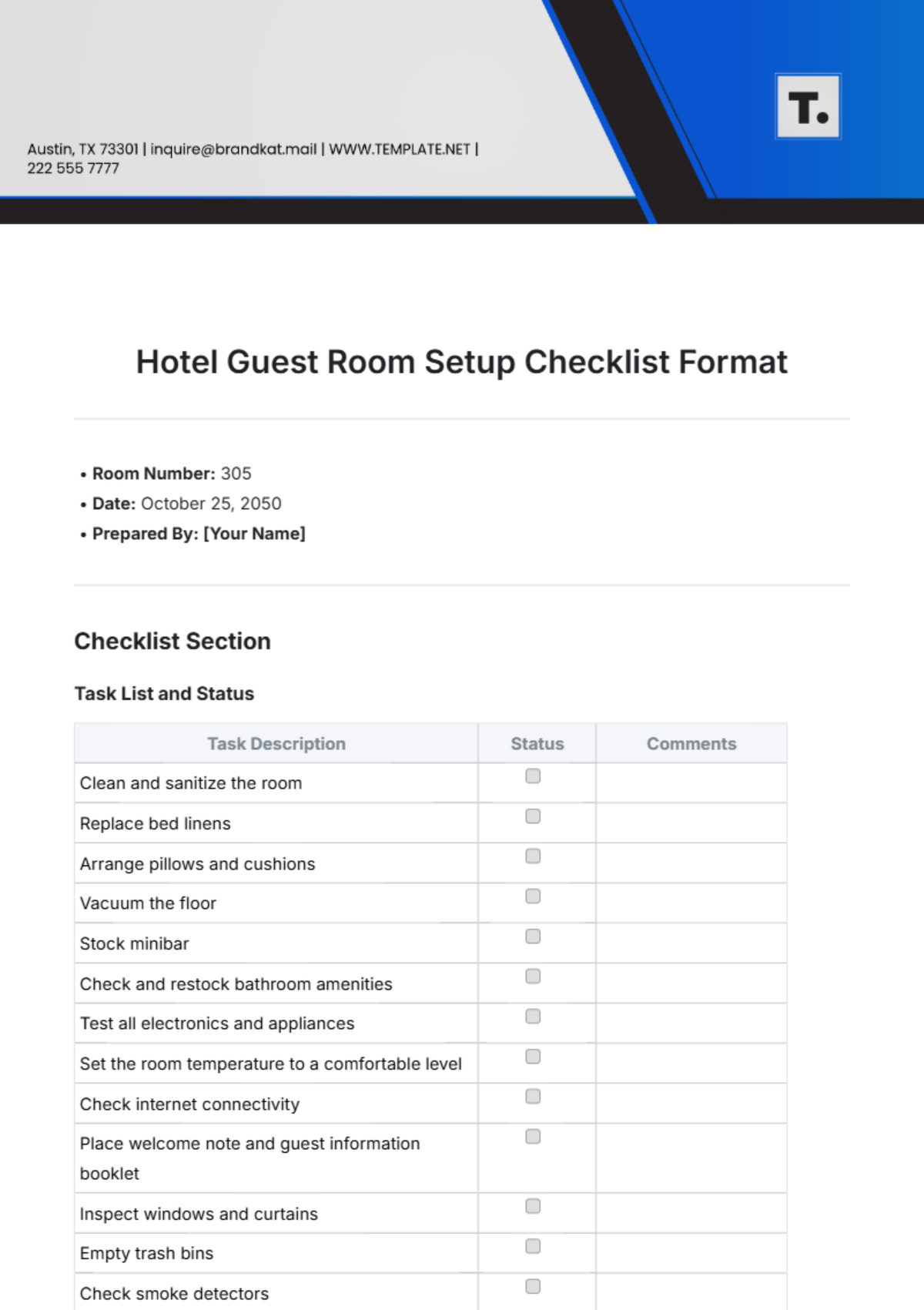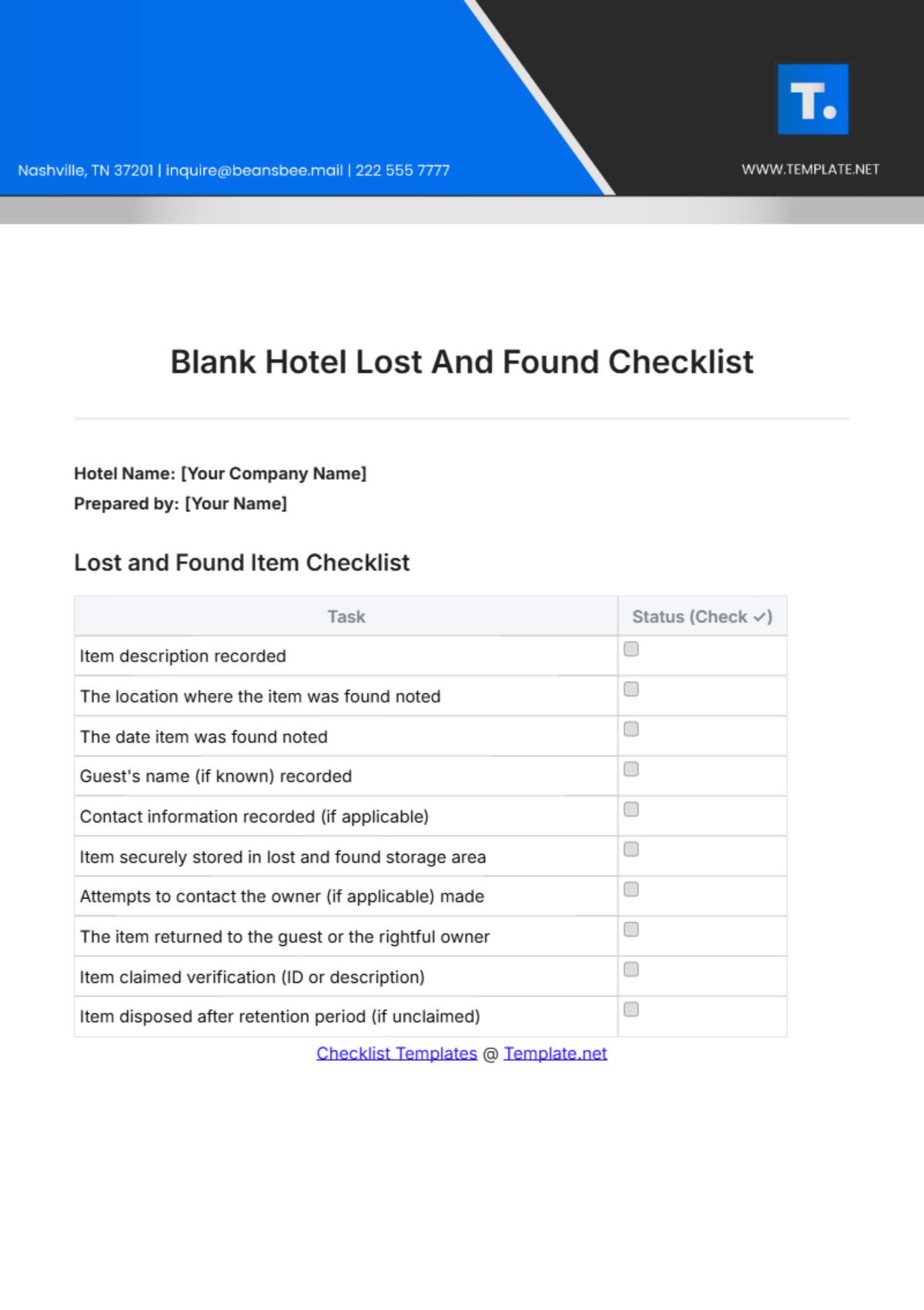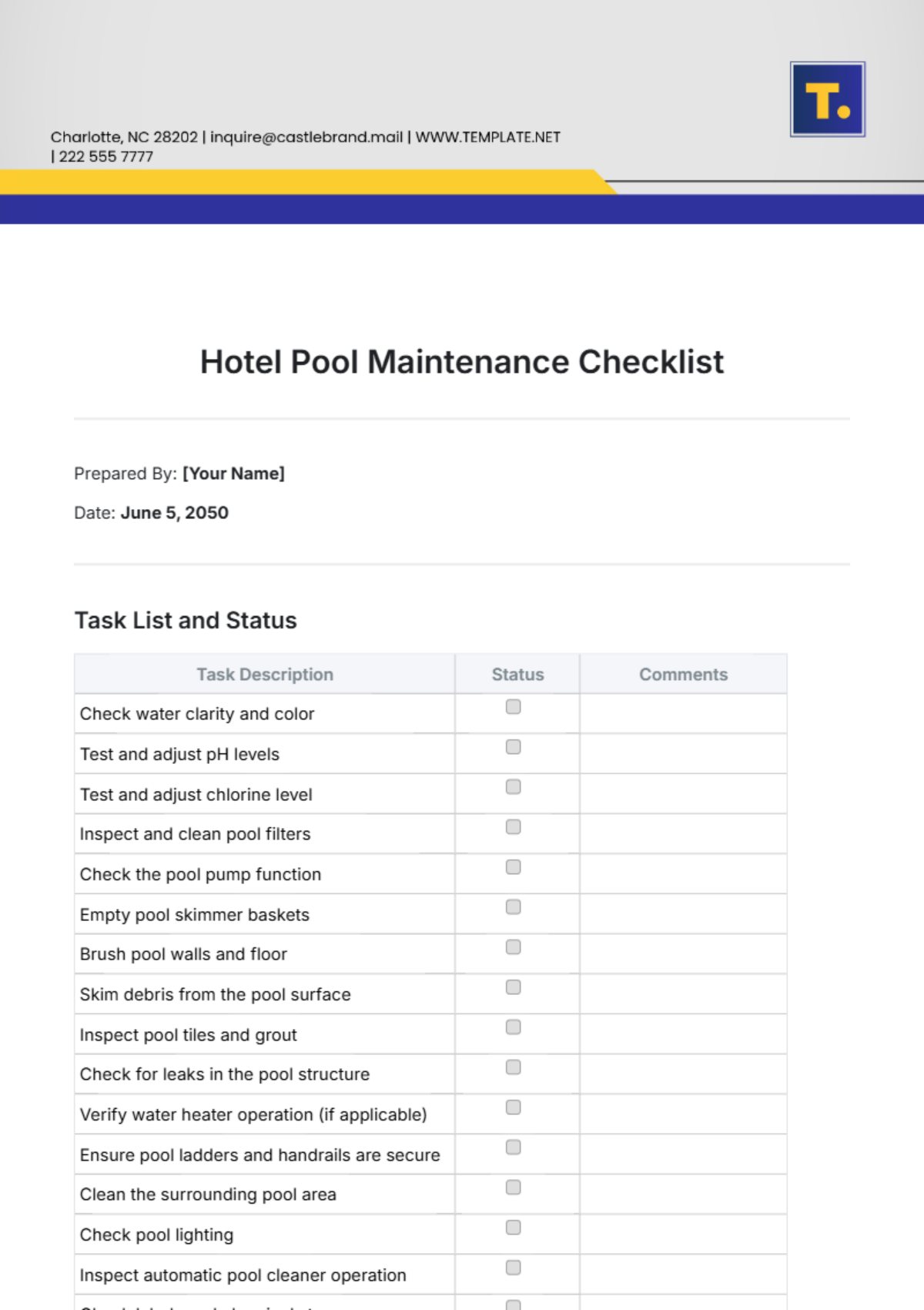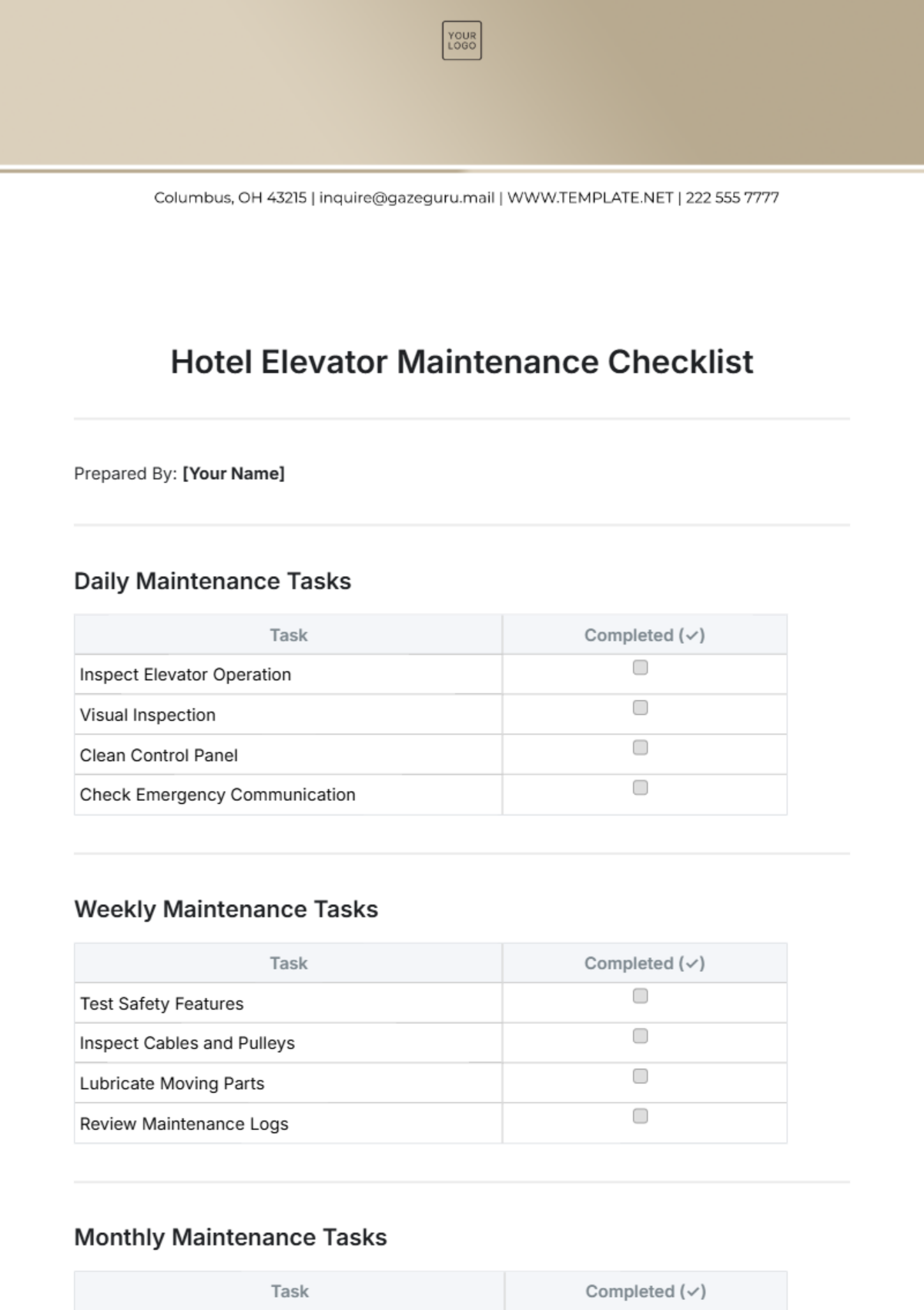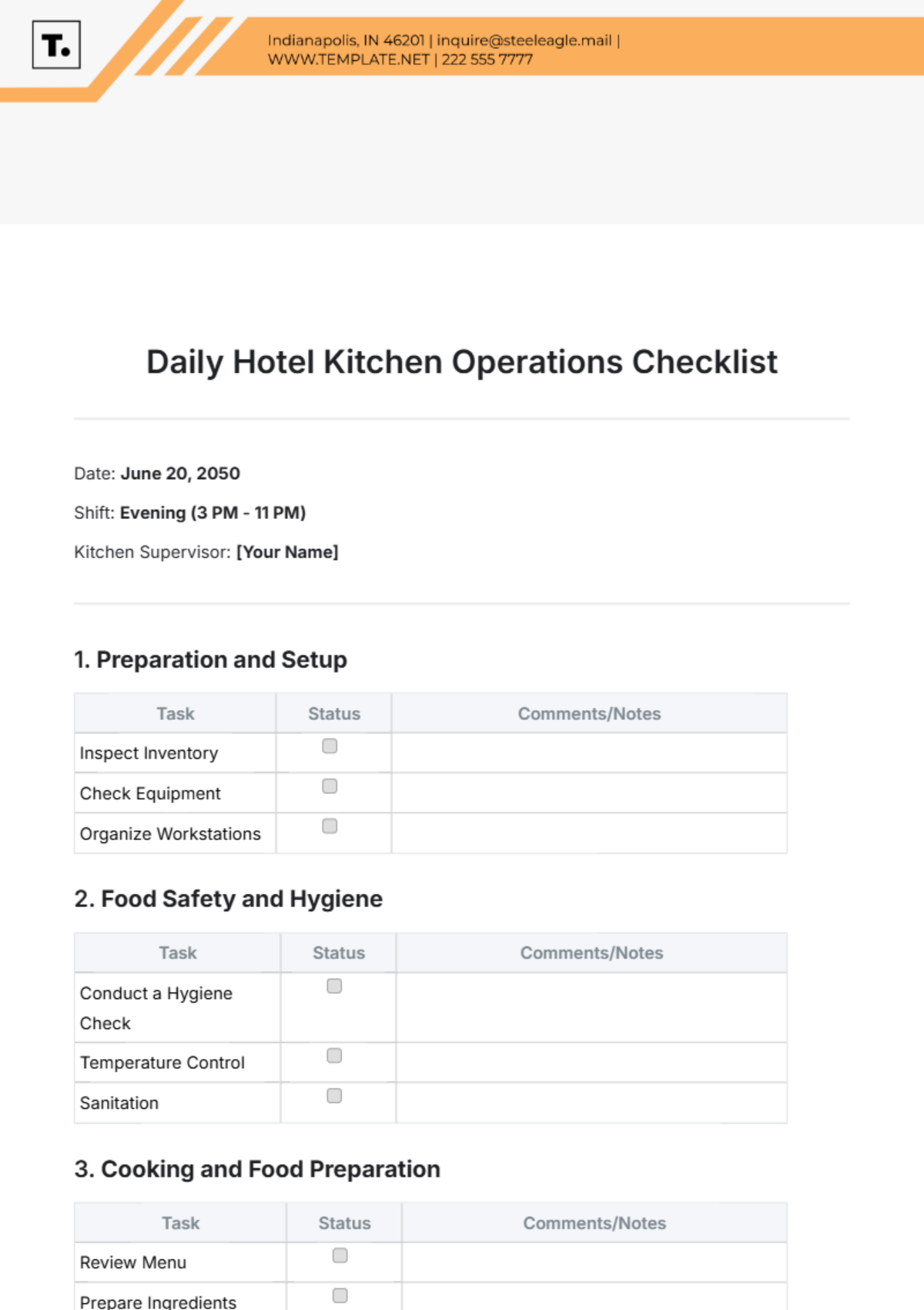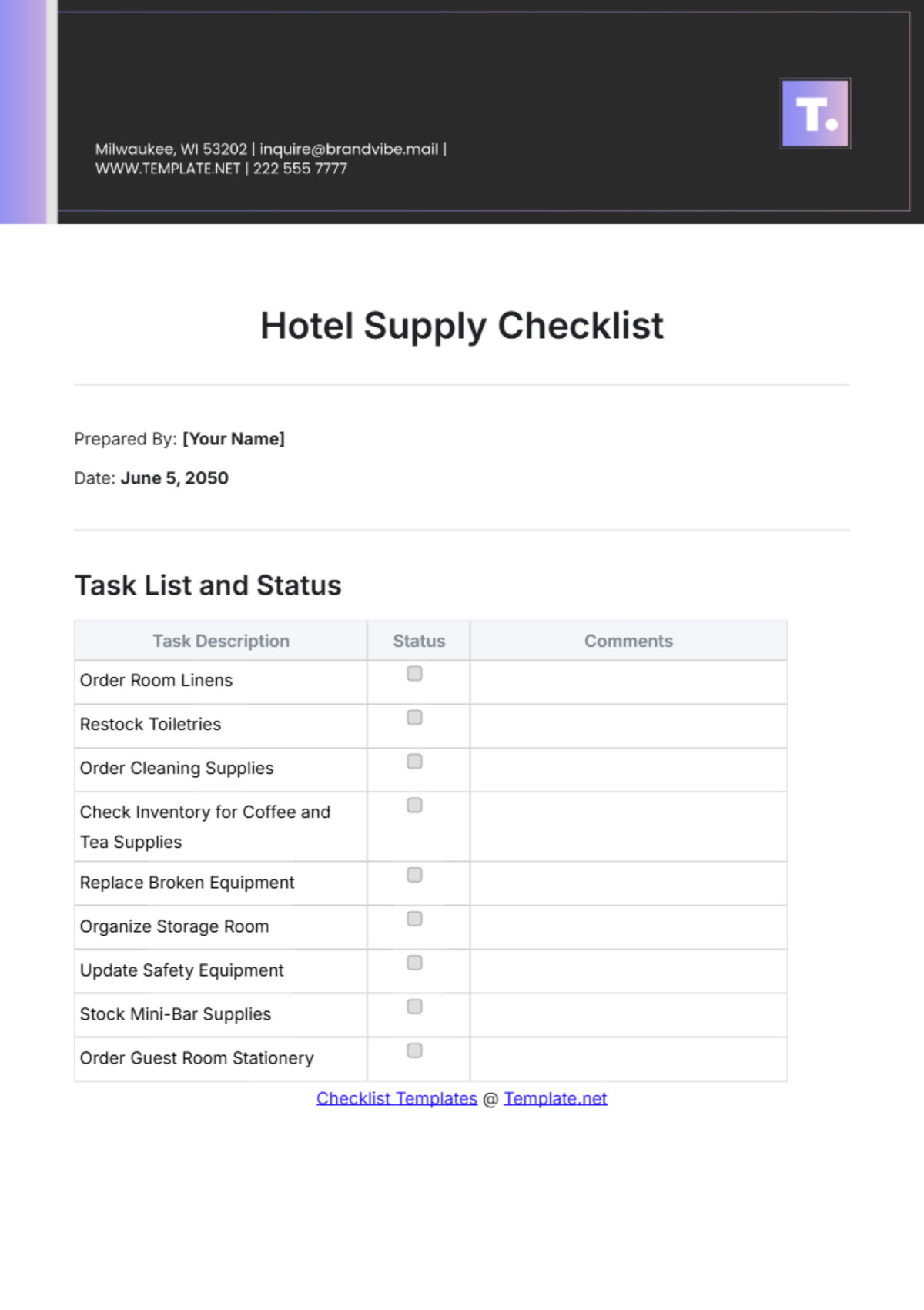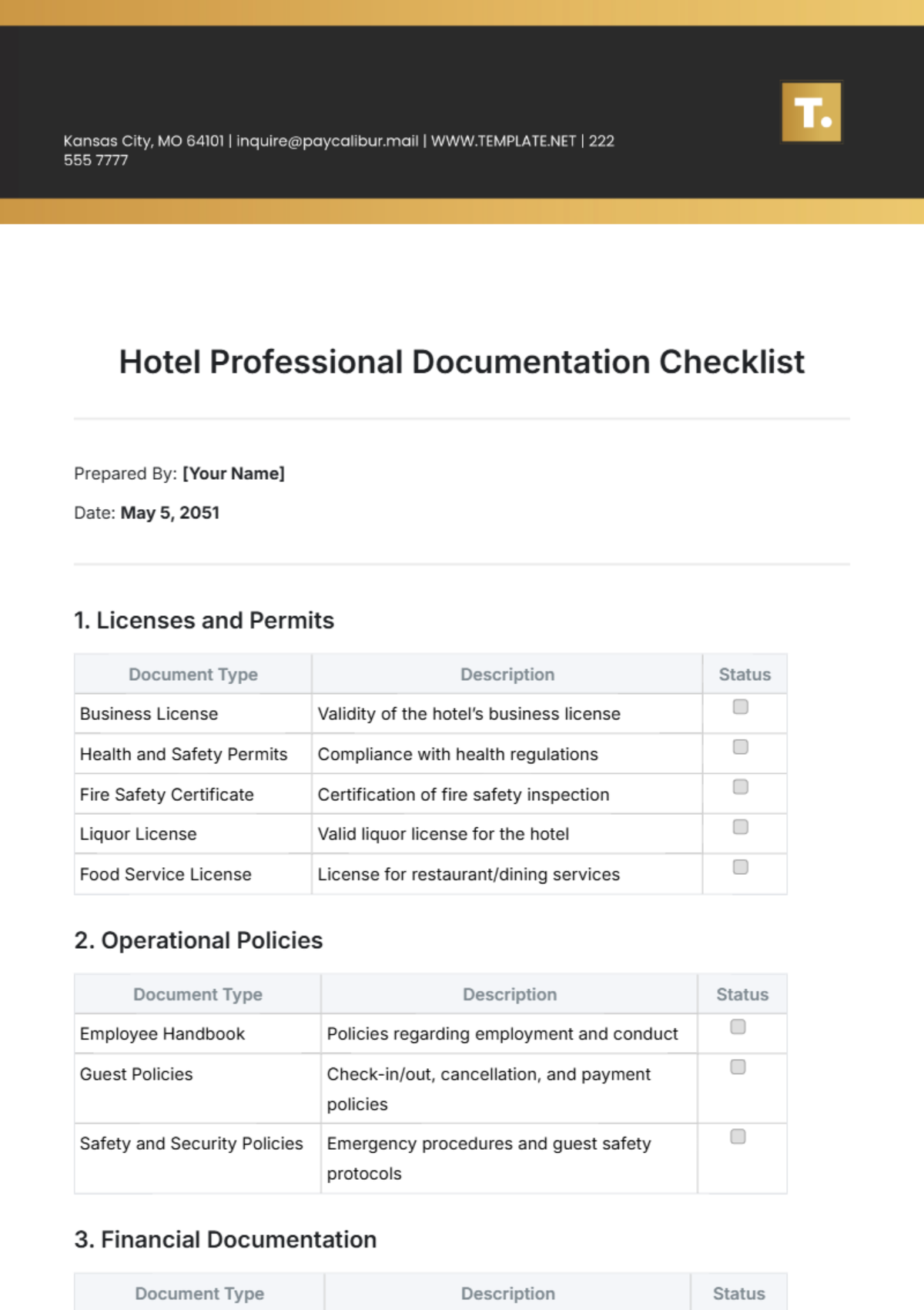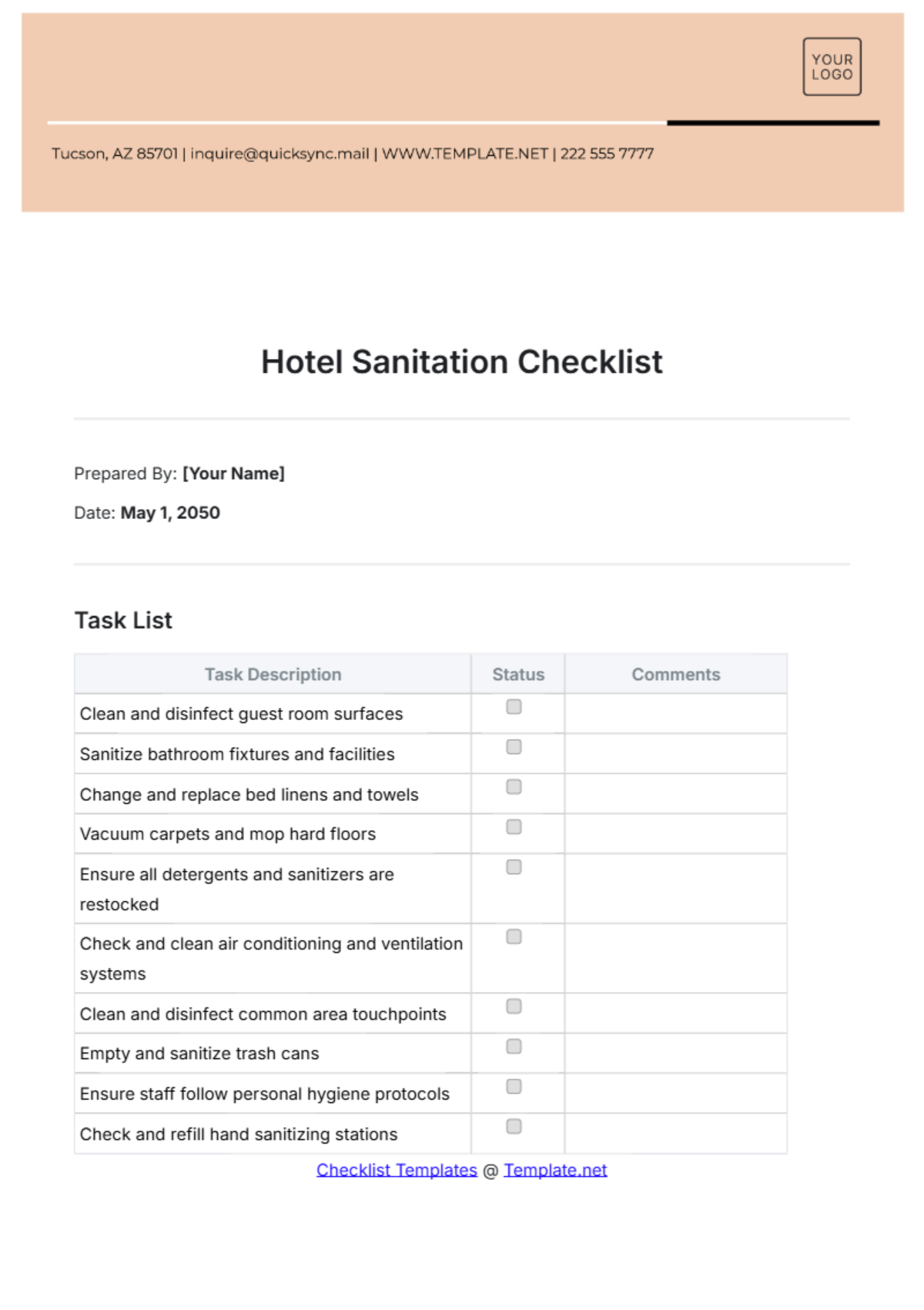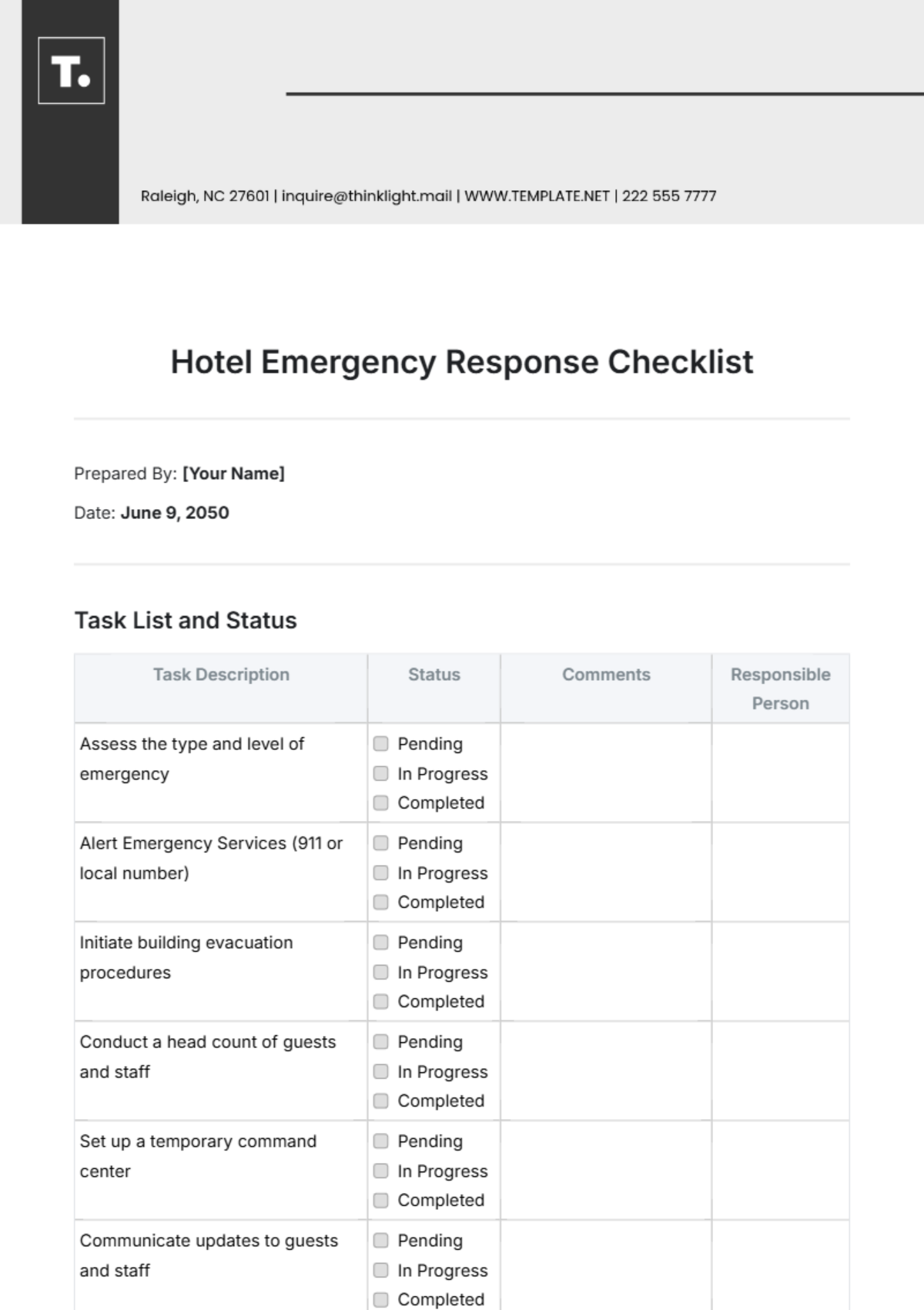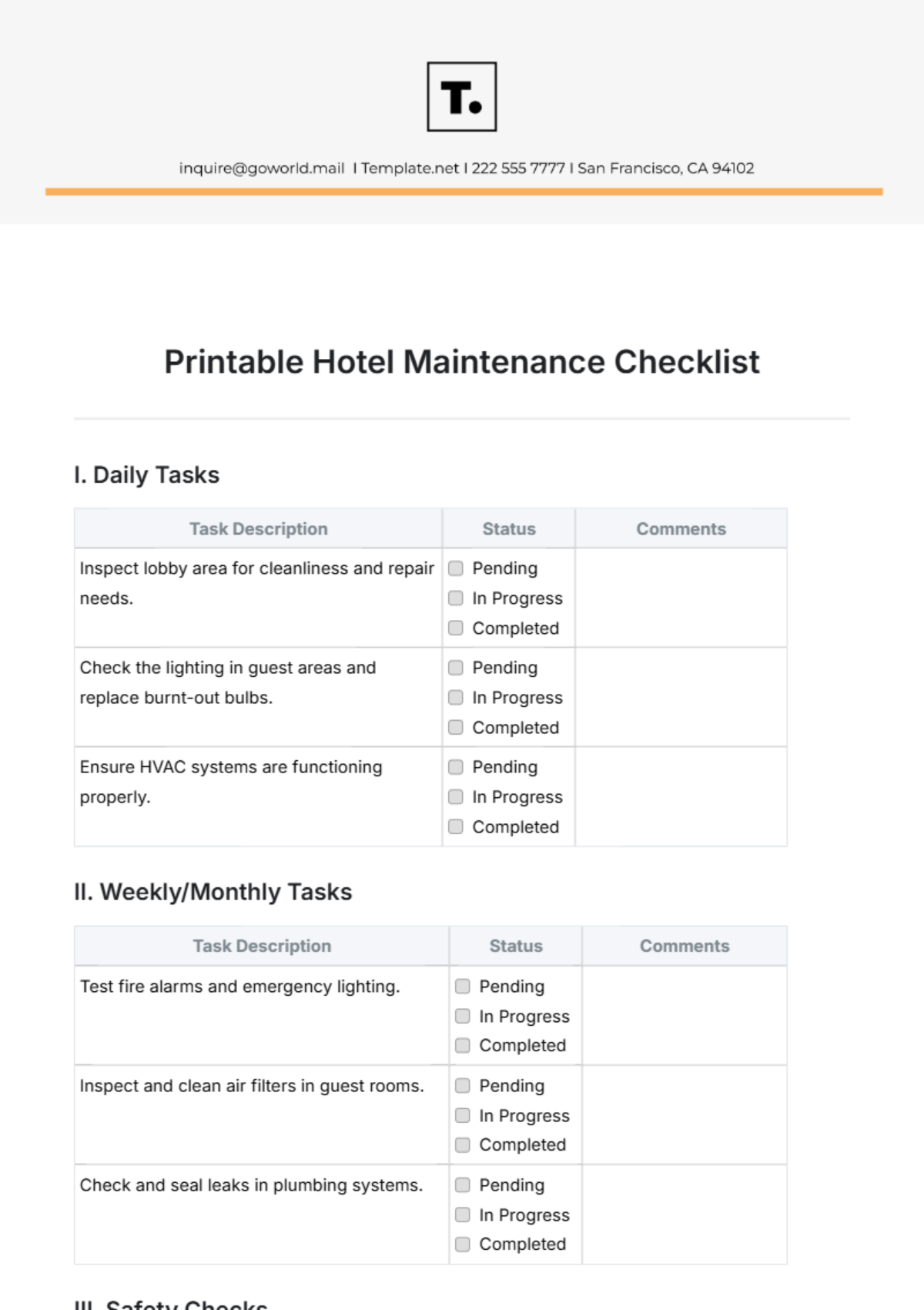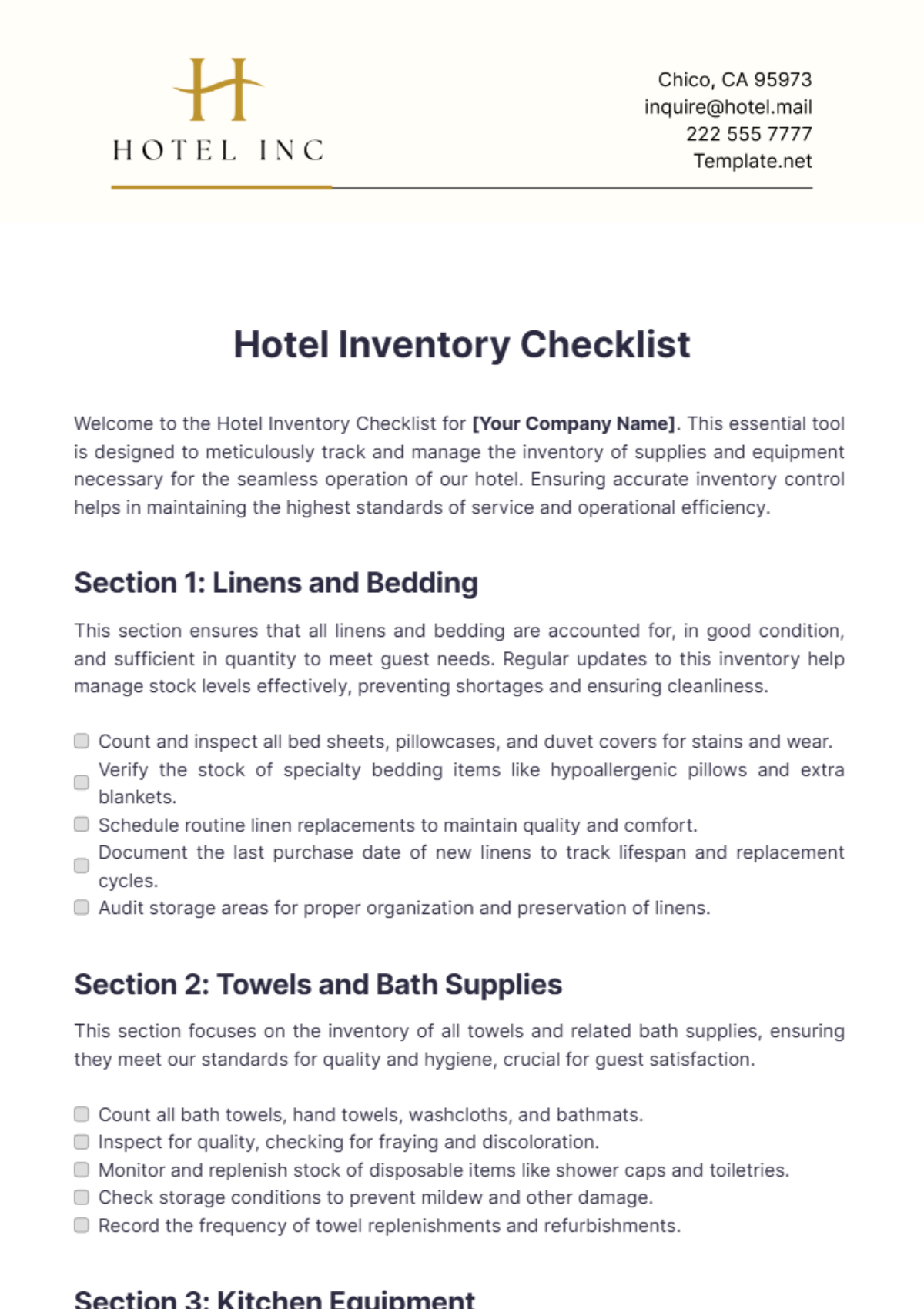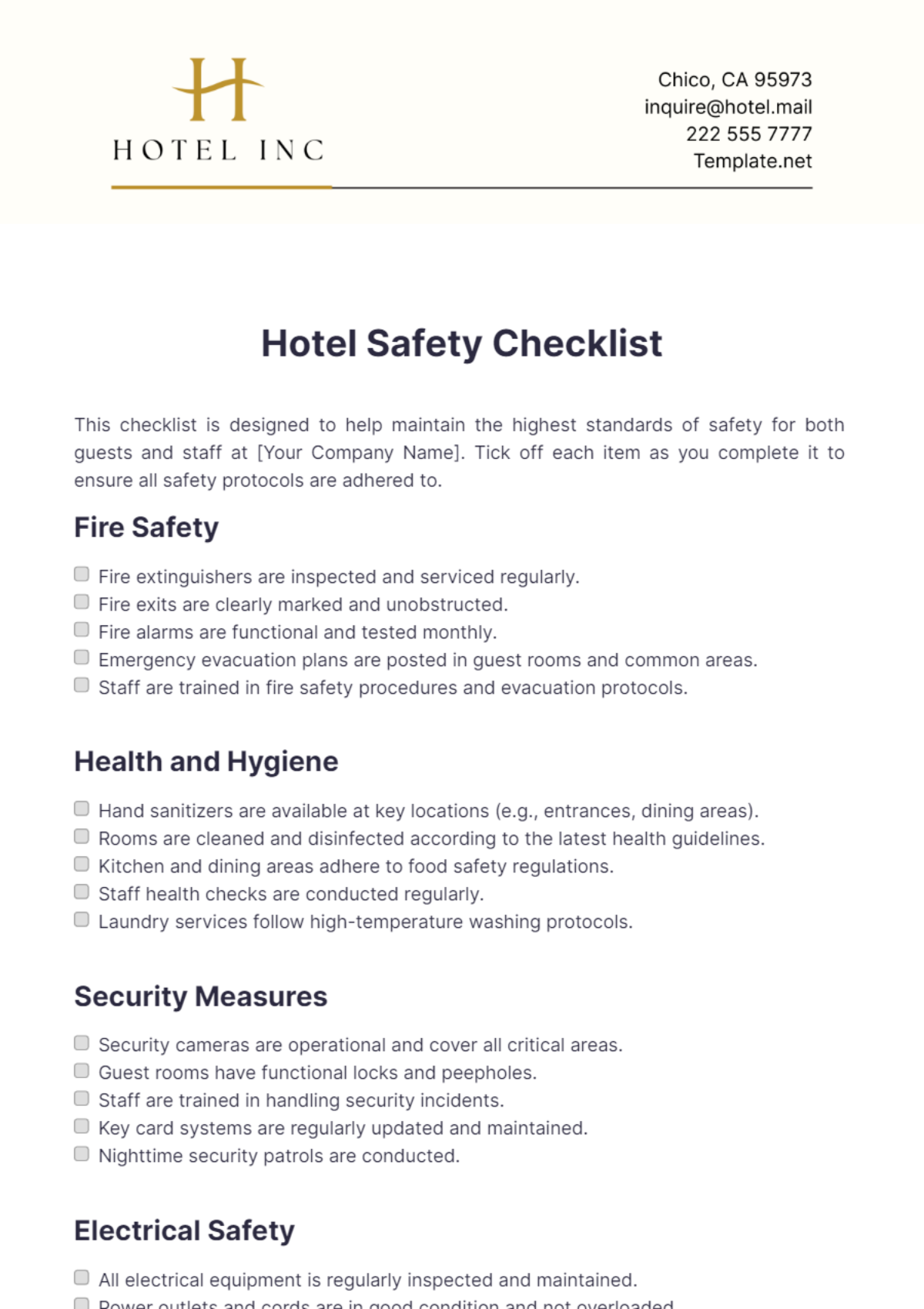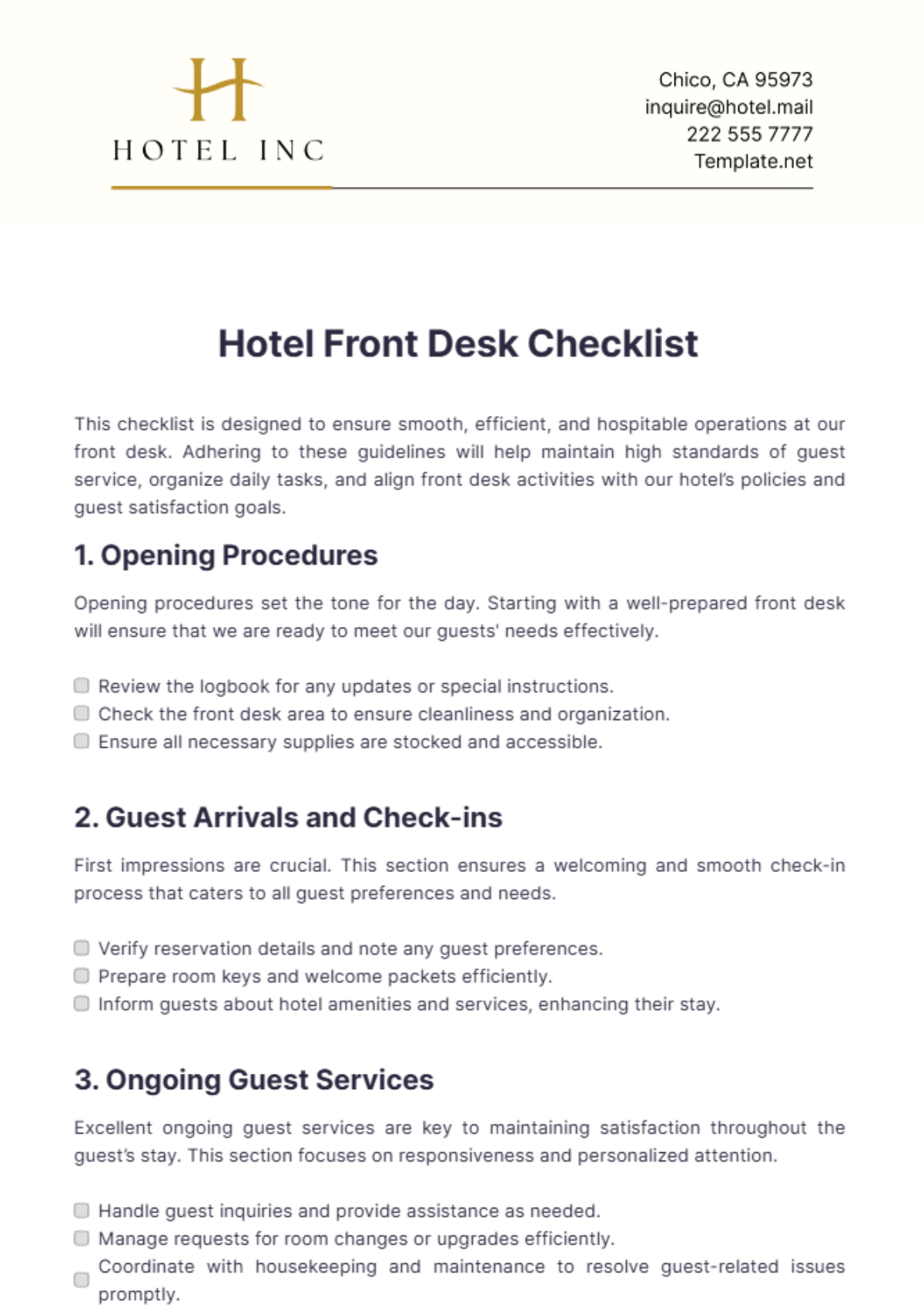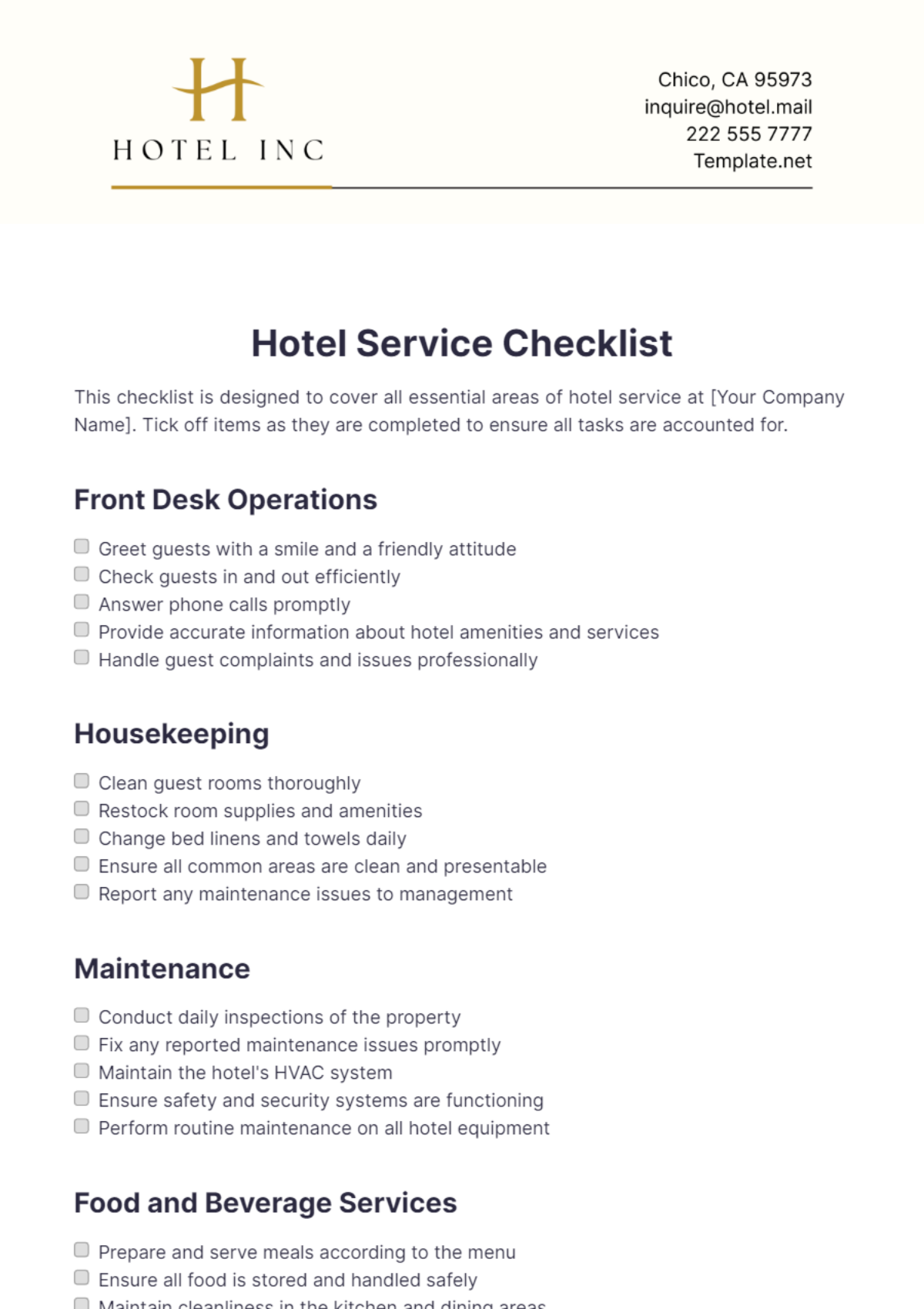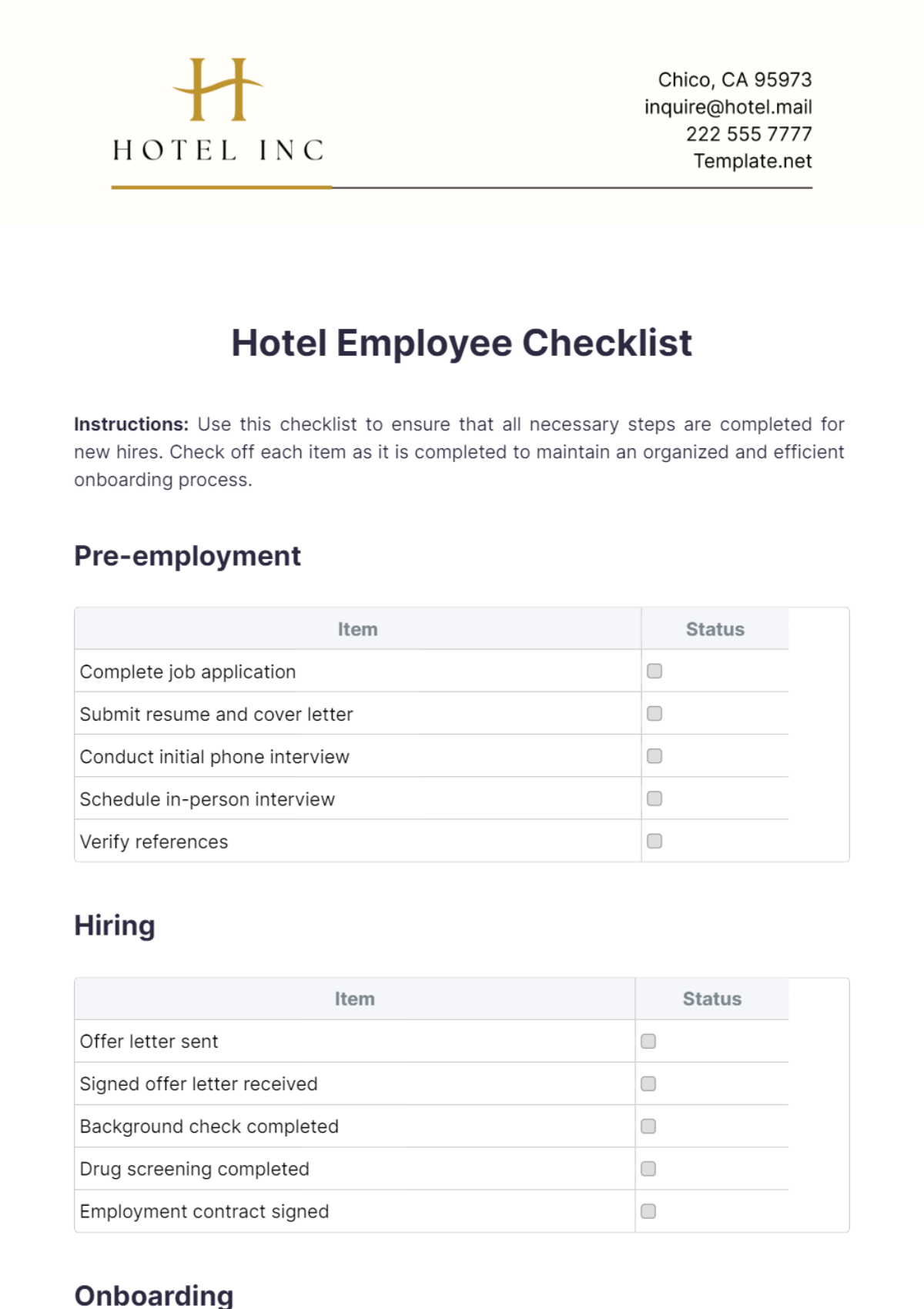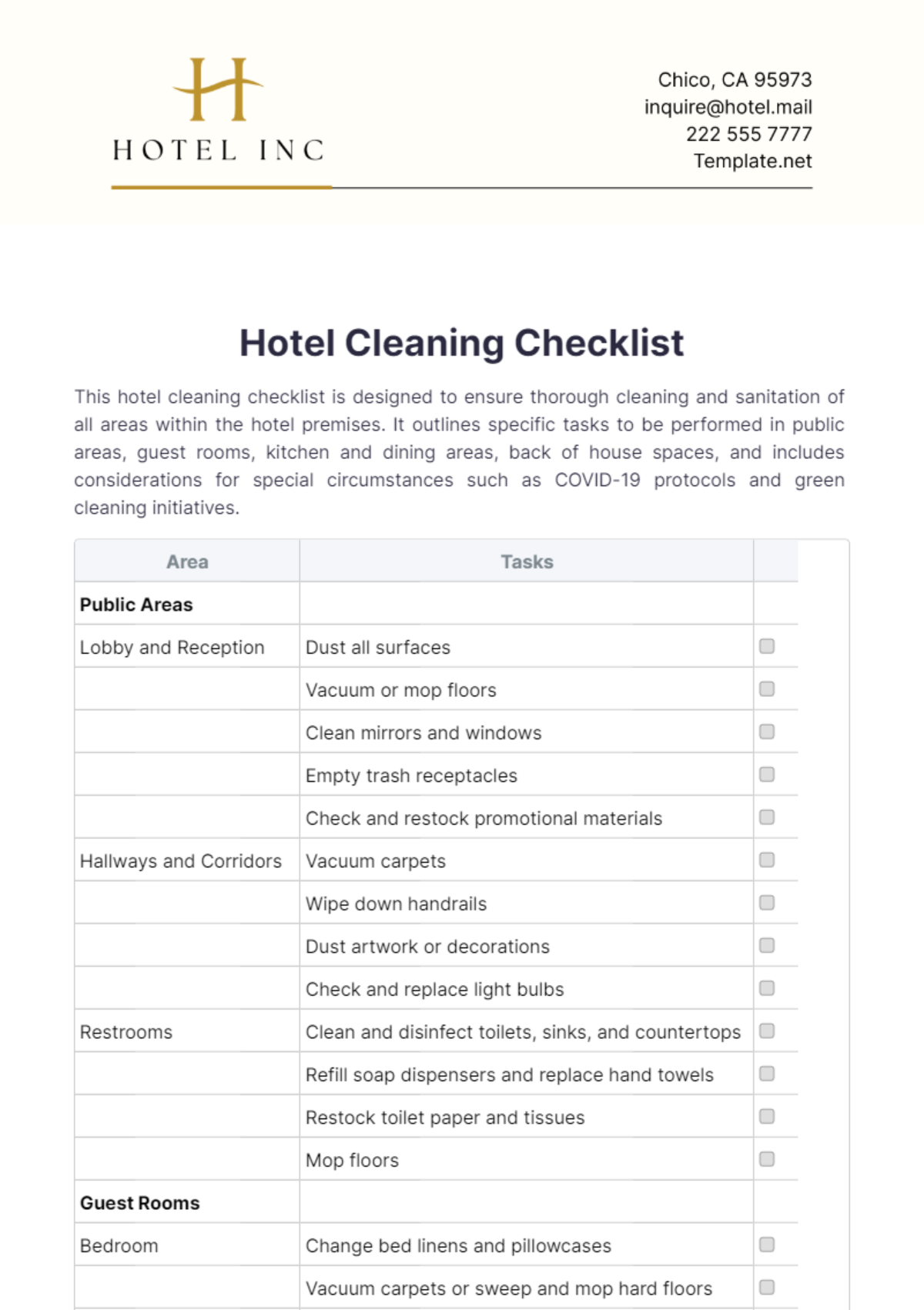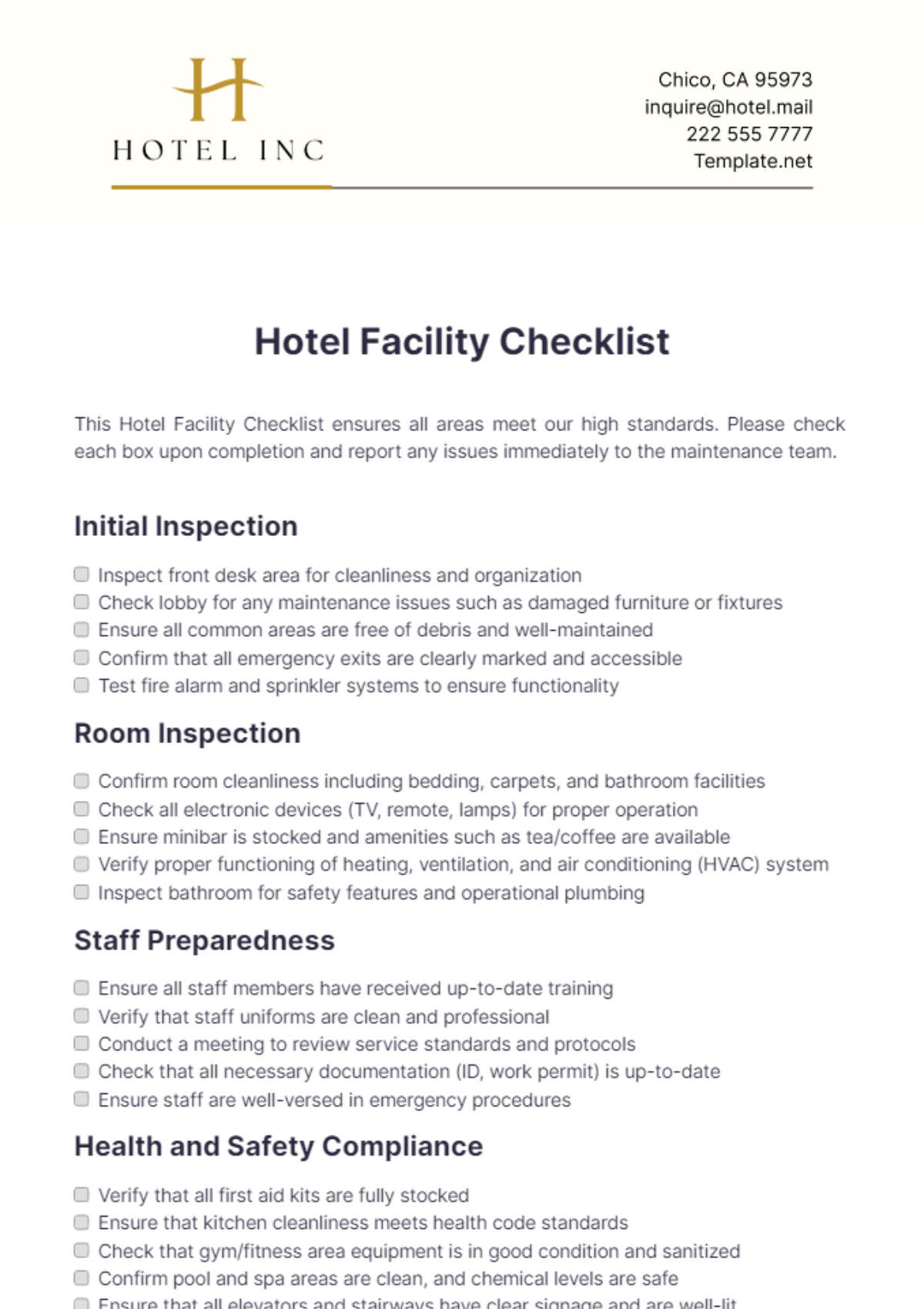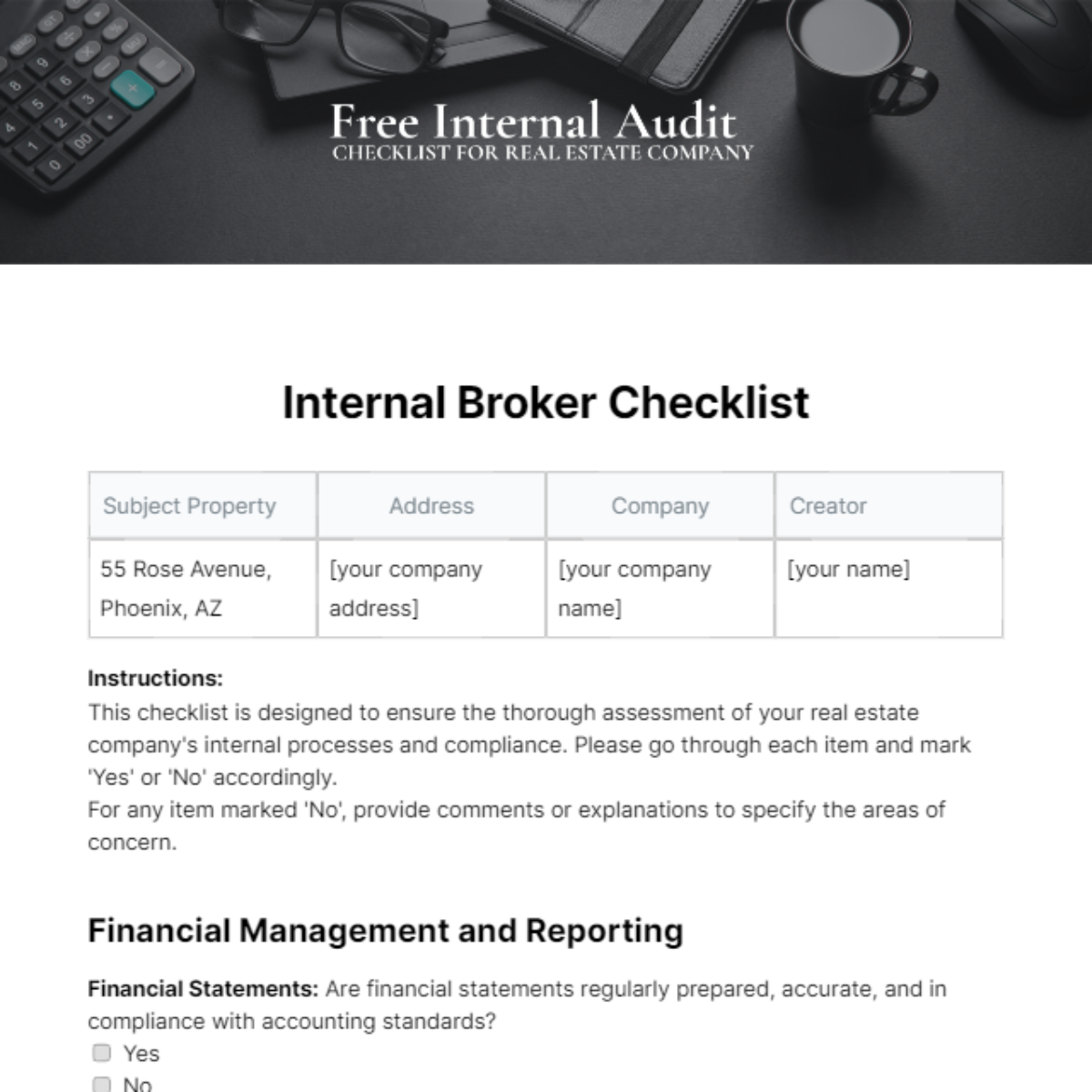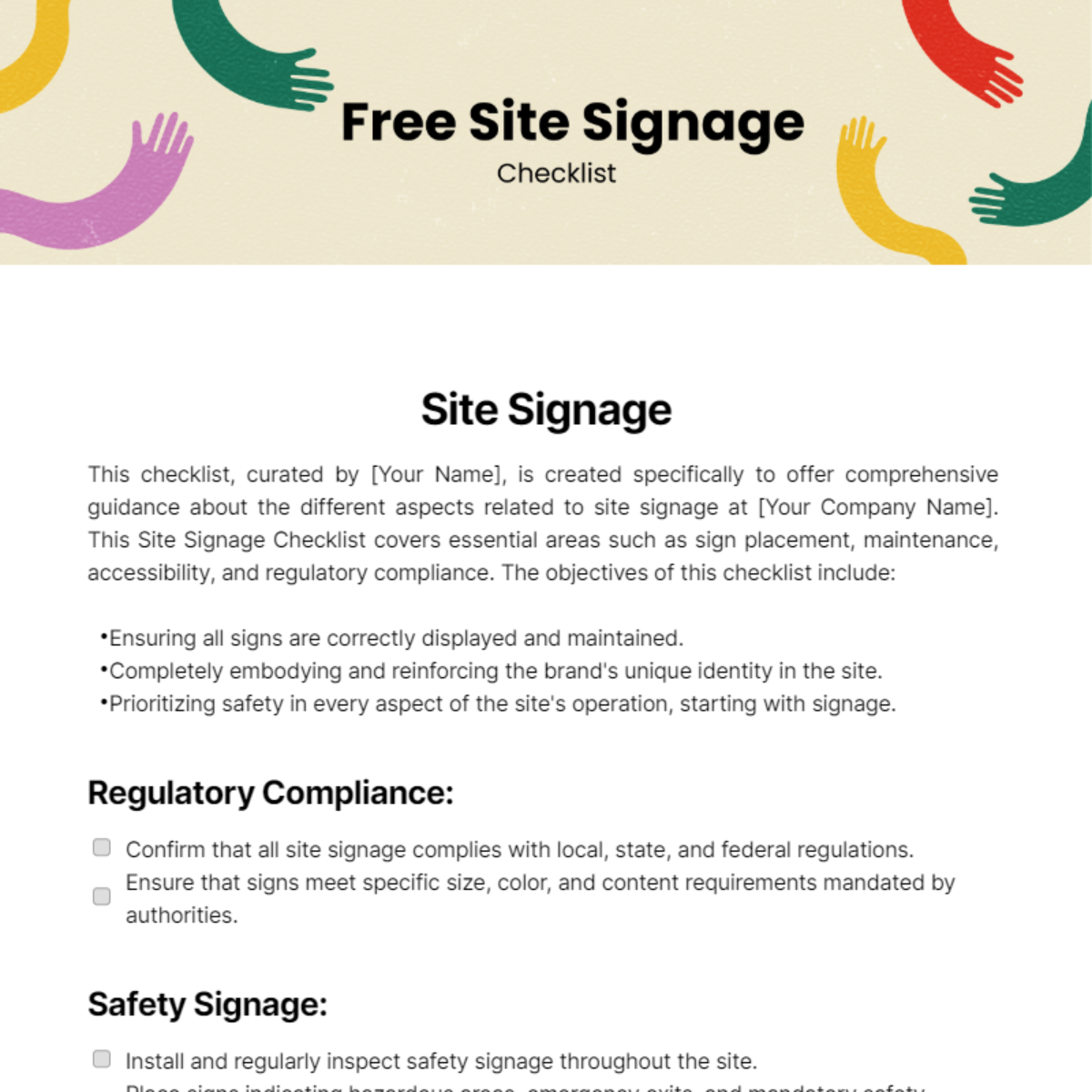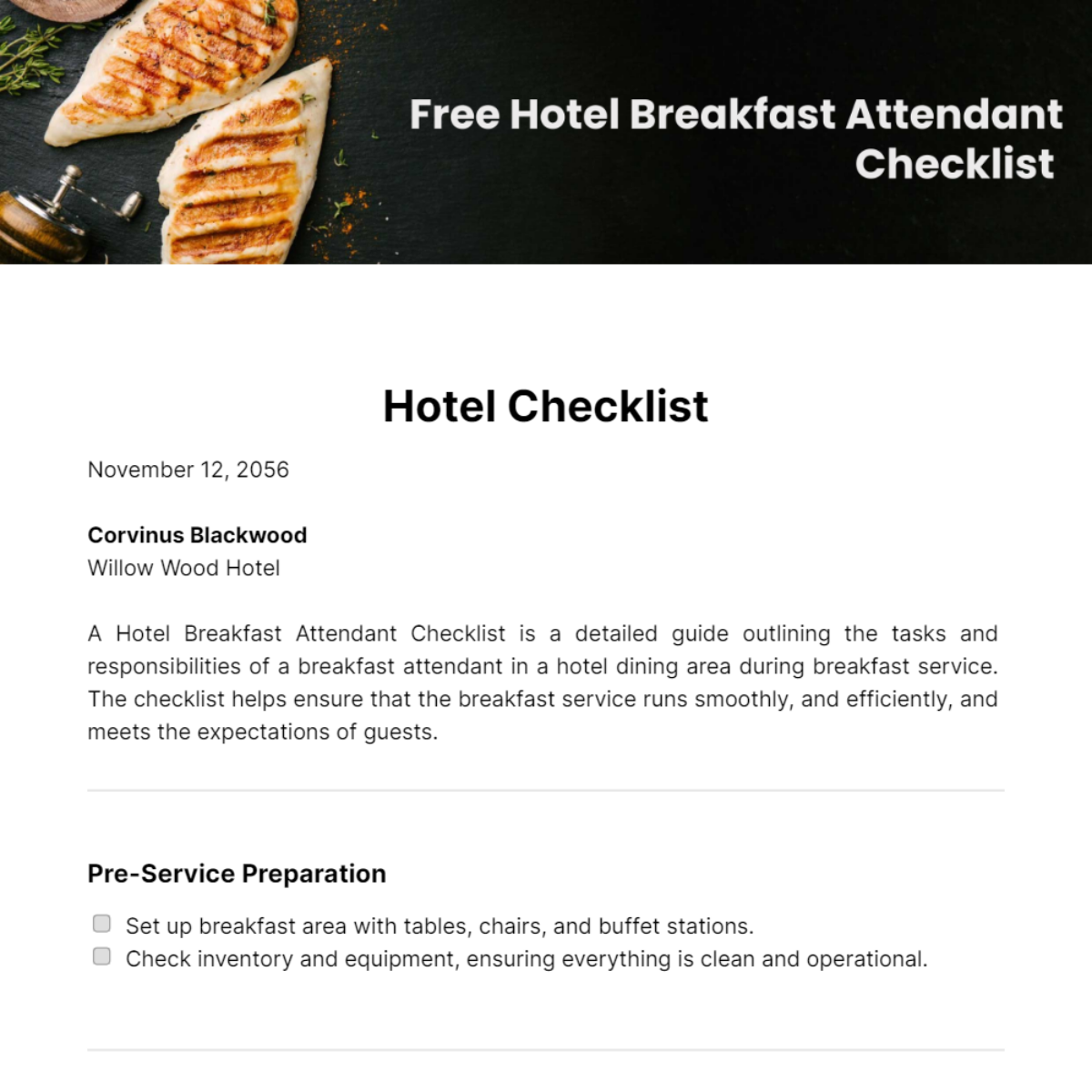Manager on Duty
Name: | Date: | Company: |
|---|---|---|
[Your Name] | July 10, 2055 | [Your Company Name] |
Staff Coordination:
Conduct a thorough review of the daily schedule and staff assignments.
Ensure that all team members are aware of their roles and responsibilities for the shift.
Facilitate effective communication channels among staff members.
Customer Service Oversight:
Monitor the customer service environment, addressing any issues promptly.
Engage with customers to gather feedback and ensure satisfaction.
Resolve escalated customer concerns and disputes with professionalism.
Quality Control and Maintenance:
Conduct regular inspections of the facility, addressing cleanliness and maintenance issues.
Ensure adherence to quality standards in service delivery.
Coordinate with relevant departments to address any equipment malfunctions promptly.
Security and Safety Measures:
Oversee security protocols, including monitoring surveillance systems.
Ensure that safety measures are in place and understood by all staff.
Coordinate emergency response plans and conduct regular drills.
Financial Management:
Monitor transactions and financial activities during the shift.
Address any discrepancies in cash handling or billing.
Adhere to budgetary guidelines and report any variances.
Communication Management:
Maintain open lines of communication with staff members.
Facilitate communication between different departments.
Address any issues or concerns raised by staff or customers.
Team Support and Development:
Provide guidance and support to staff members.
Identify opportunities for staff training and development.
Foster a positive team culture and morale.
Inventory and Stock Management:
Monitor inventory levels and coordinate restocking as needed.
Address any discrepancies in stock or supplies.
Collaborate with relevant departments to optimize inventory processes.
Vendor and Supplier Relations:
Coordinate with vendors and suppliers for timely deliveries.
Address any issues or concerns related to vendor performance.
Seek opportunities for cost-saving measures and negotiate favorable terms.
Event Coordination:
Oversee the coordination of events or functions taking place during the shift.
Ensure that staff members are prepared for increased demand during events.
Address any event-related issues promptly and professionally.
Regulatory Compliance:
Ensure compliance with local, state, and federal regulations.
Stay informed about any changes in regulations affecting the operation.
Implement necessary adjustments to maintain compliance.
Documentation and Reporting:
Maintain accurate records of activities and incidents during the shift.
Generate reports on key performance indicators and shift activities.
Document any issues or challenges for follow-up and improvement.
Training on Crisis Management:
Ensure that staff members are well-versed in crisis management protocols.
Conduct regular training sessions for emergency response.
Collaborate with local authorities and emergency services for effective preparedness.
Continuous Improvement:
Identify areas for operational improvement during the shift.
Encourage staff members to provide feedback and suggestions.
Implement corrective measures and adjustments for ongoing improvement.
